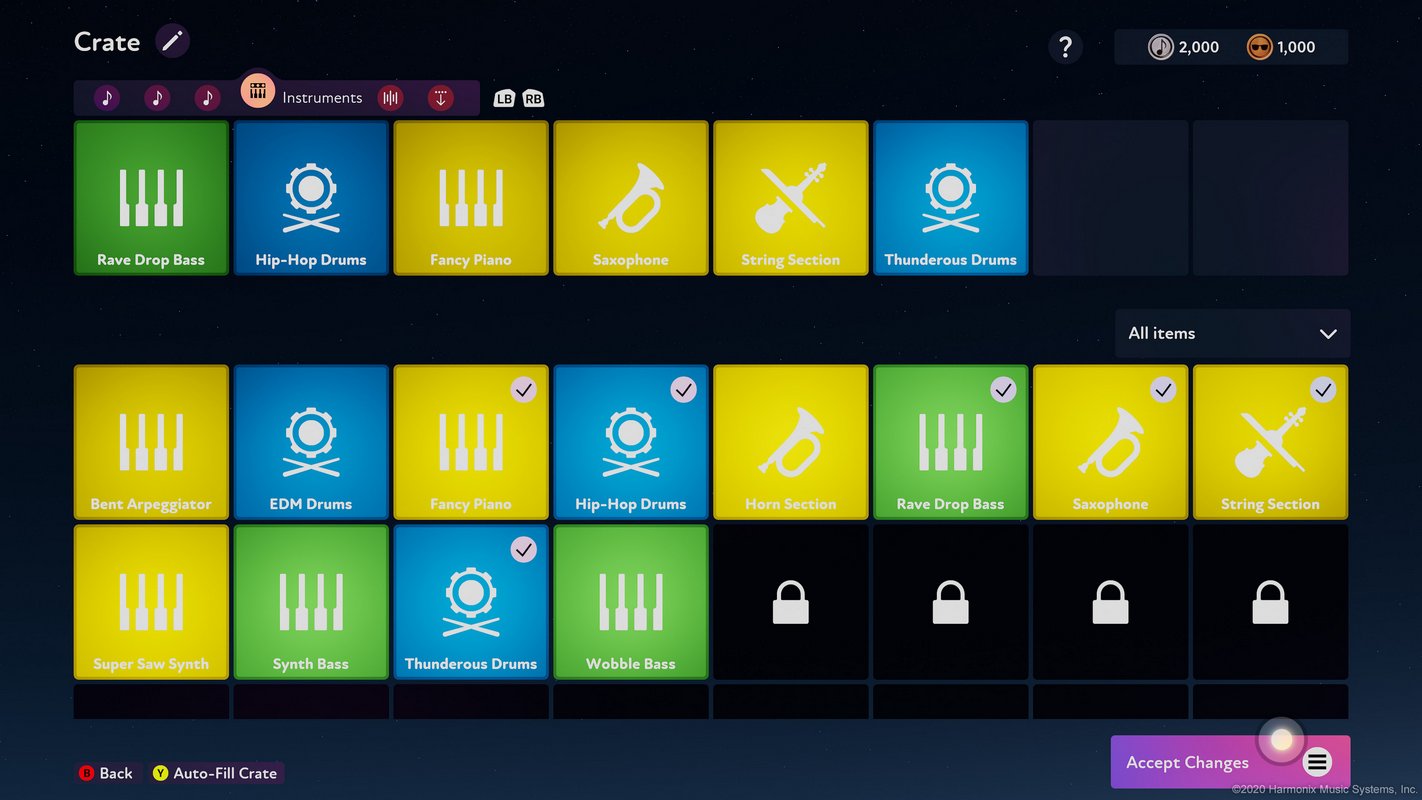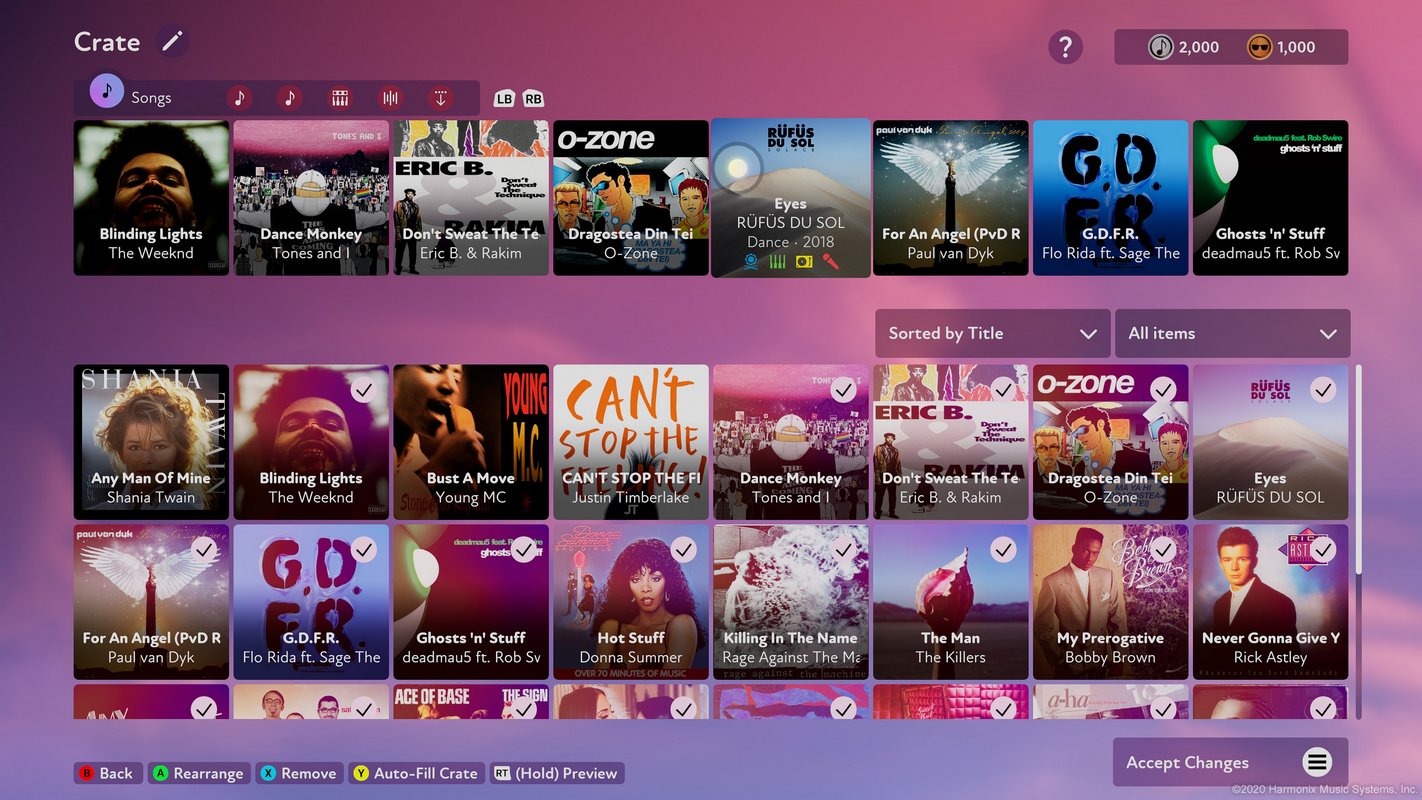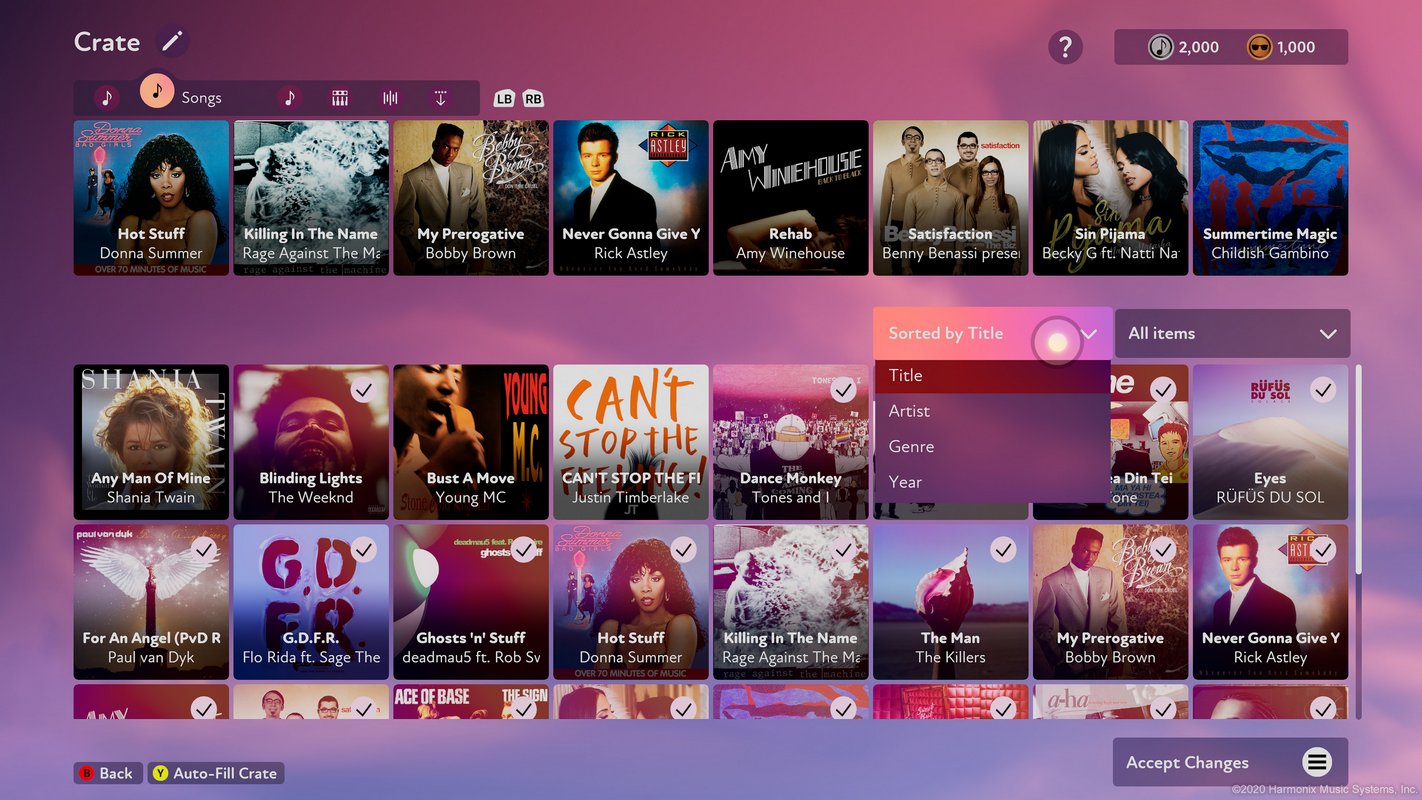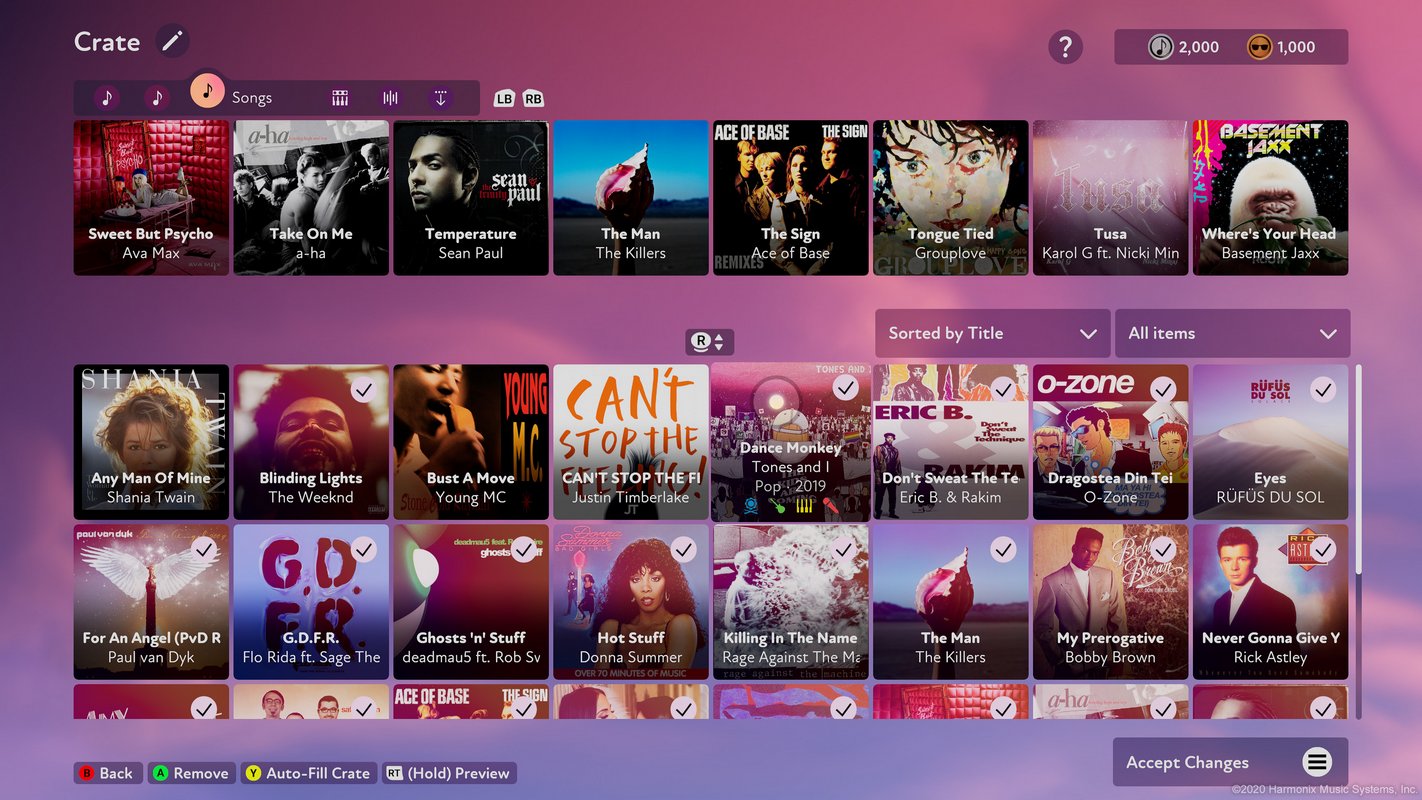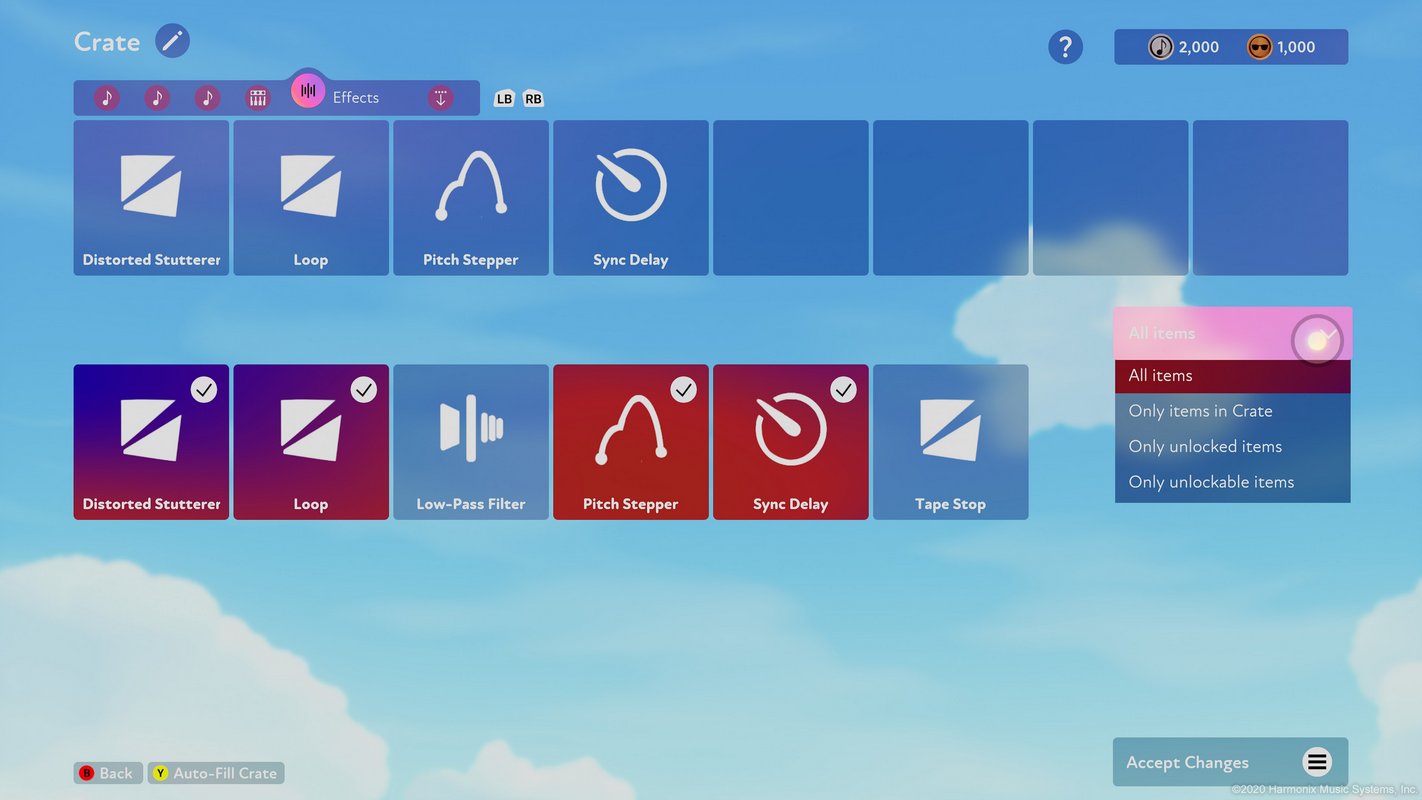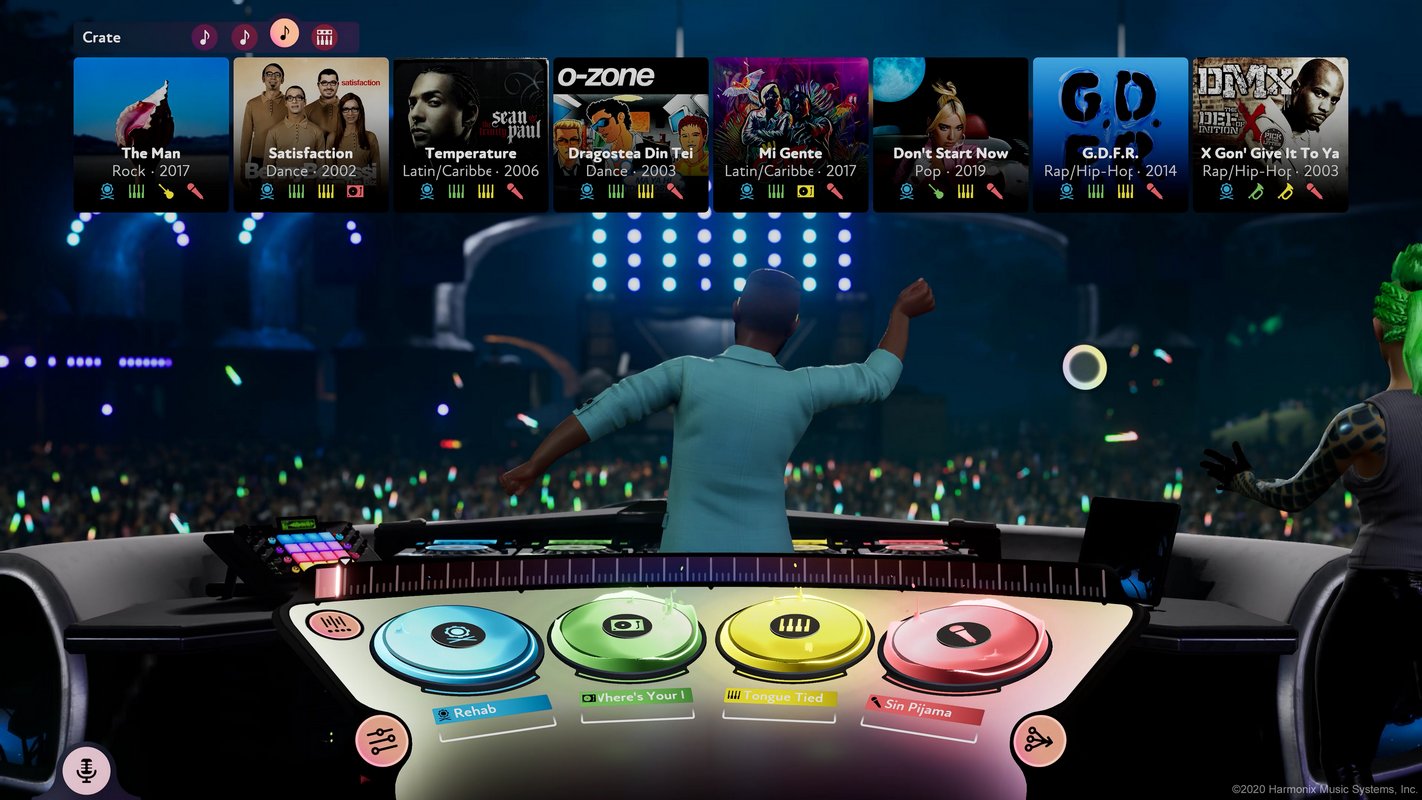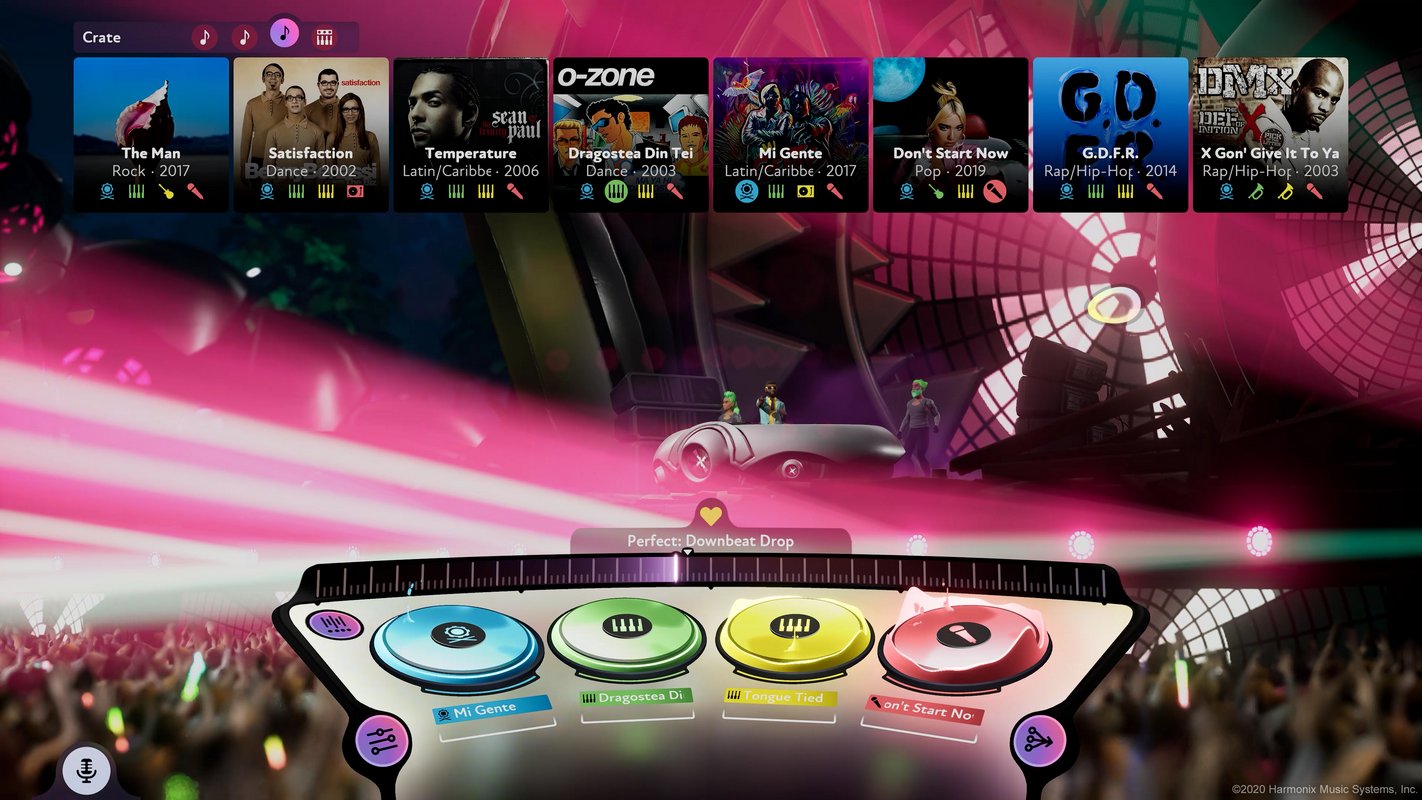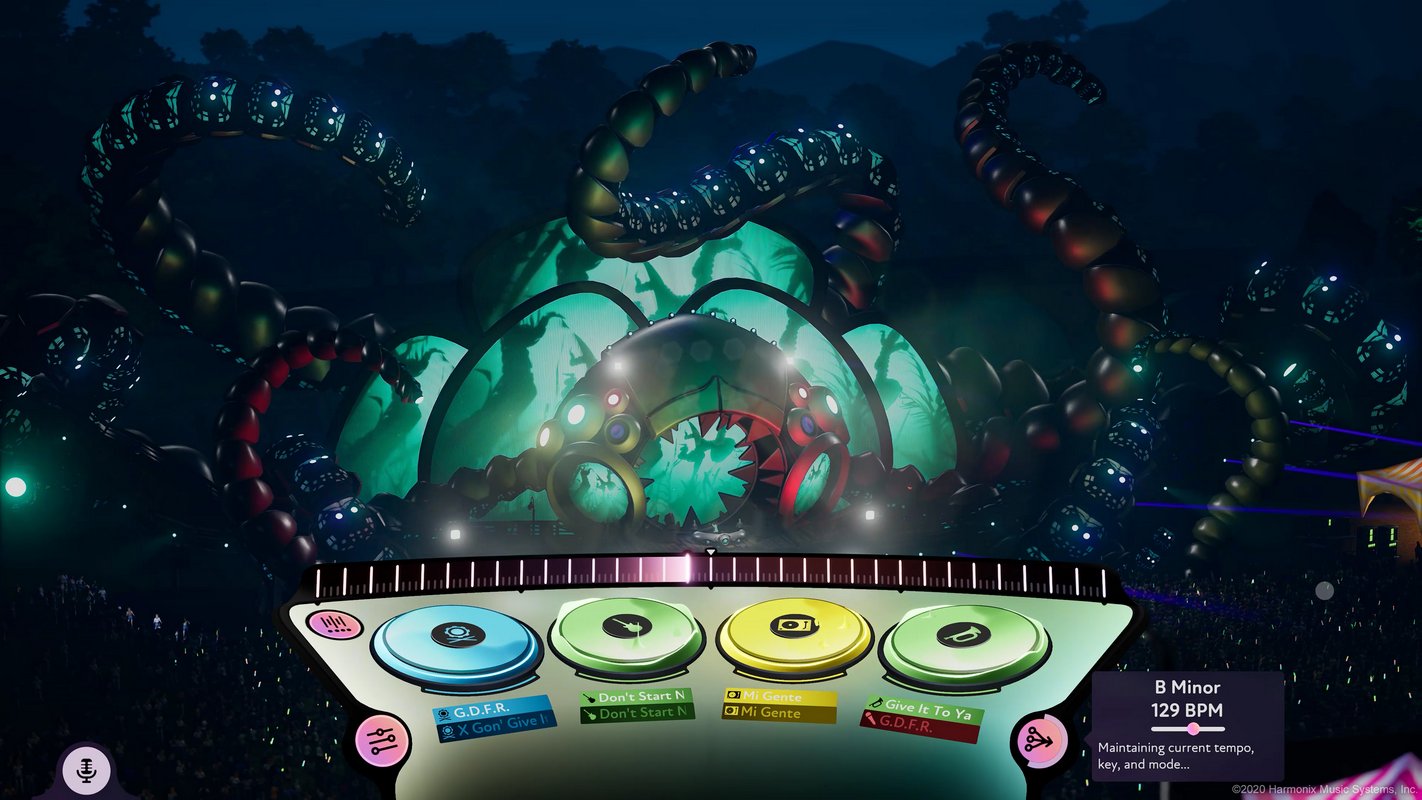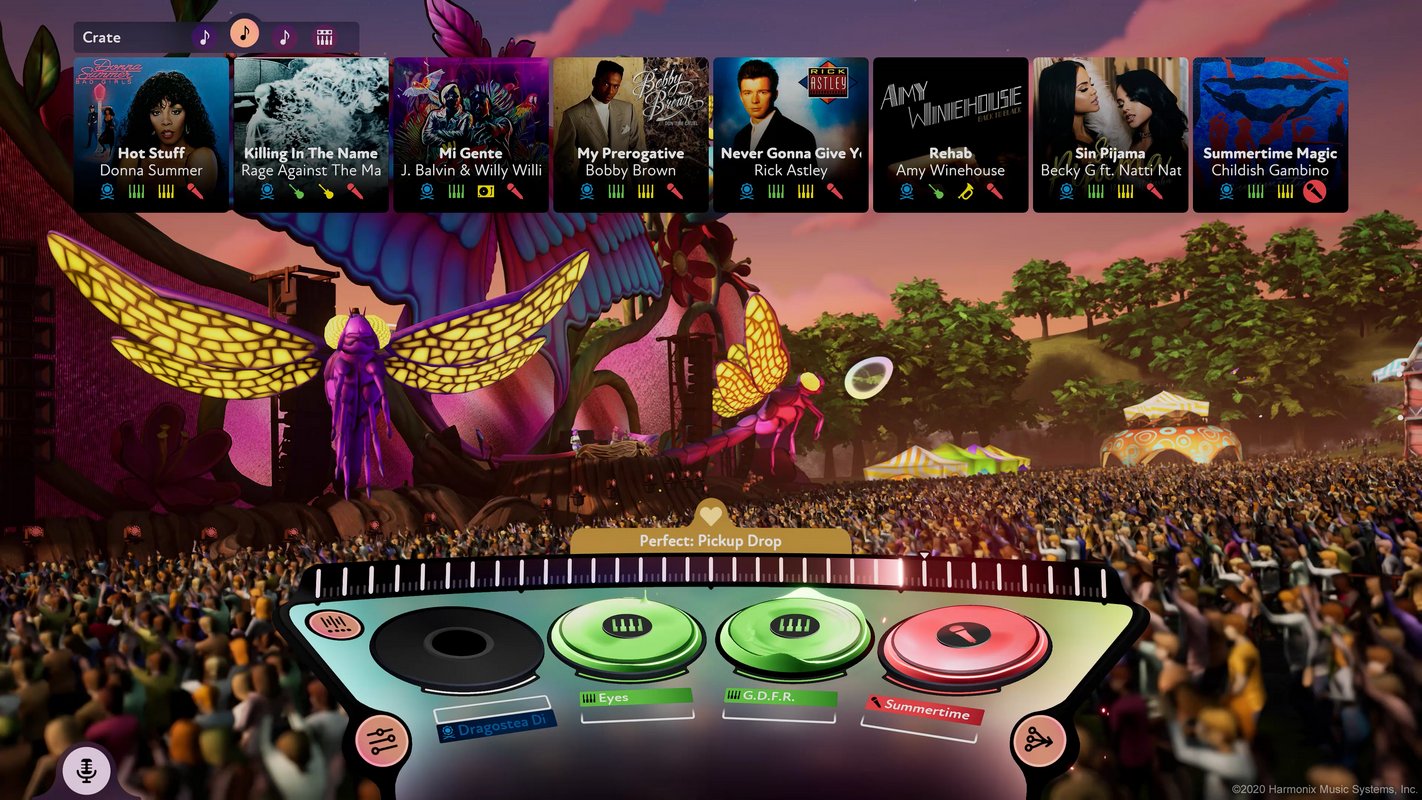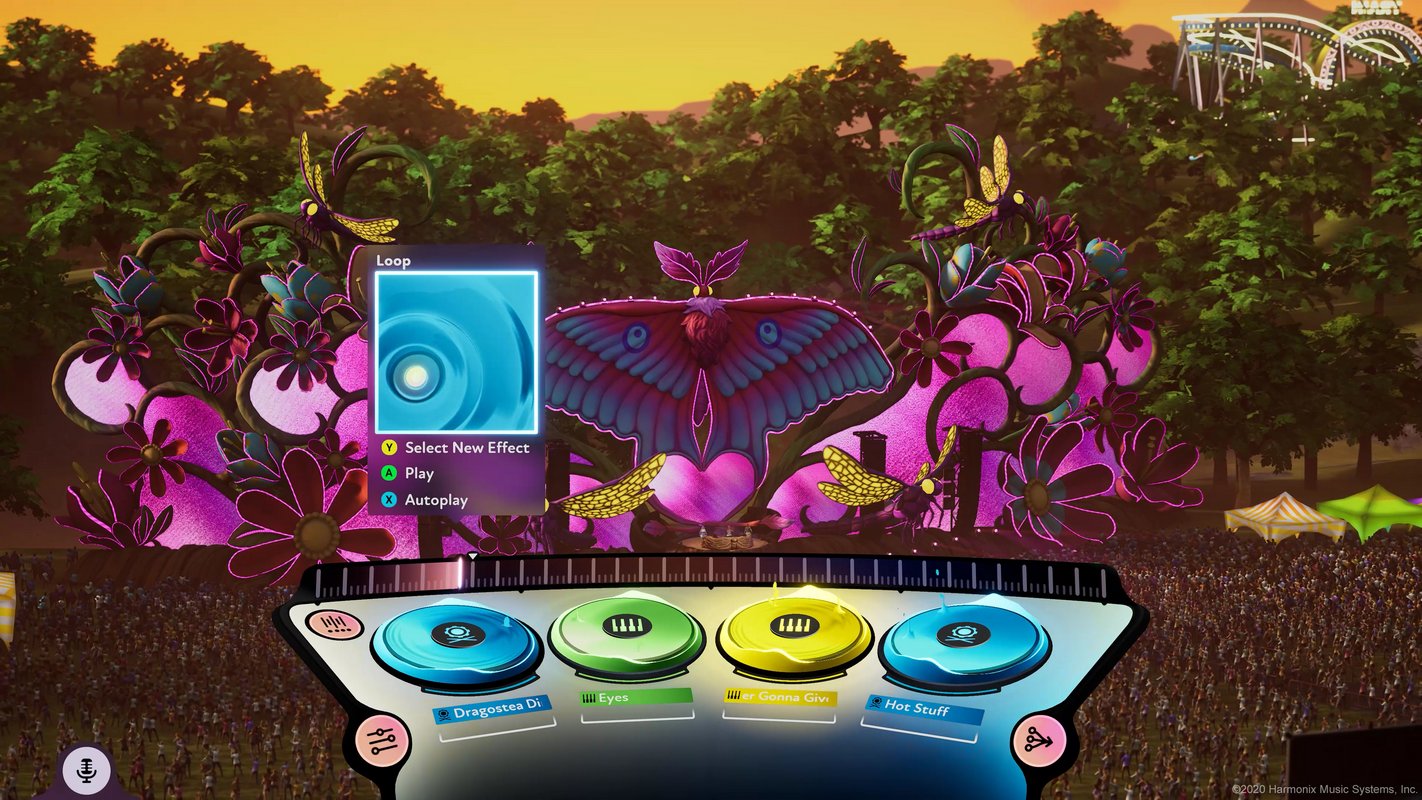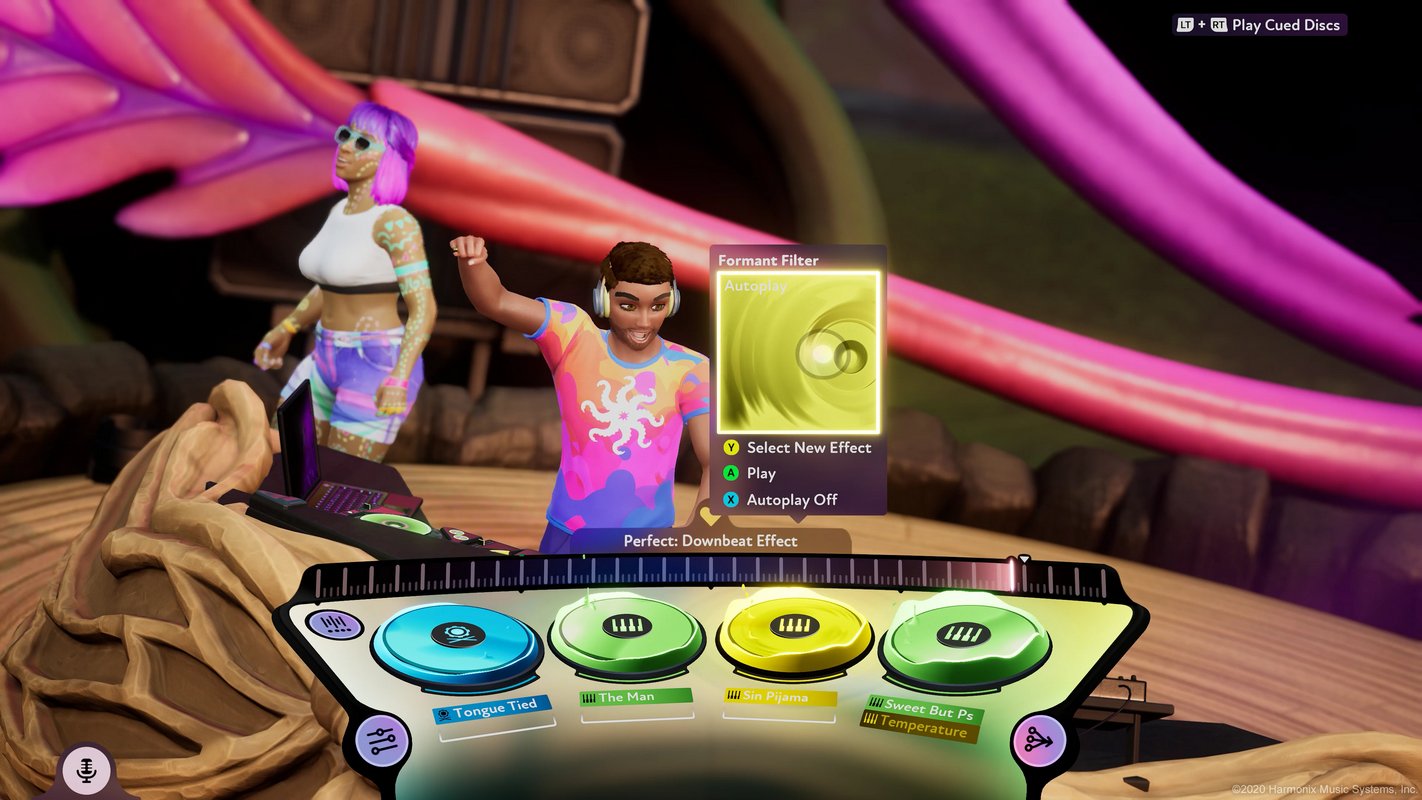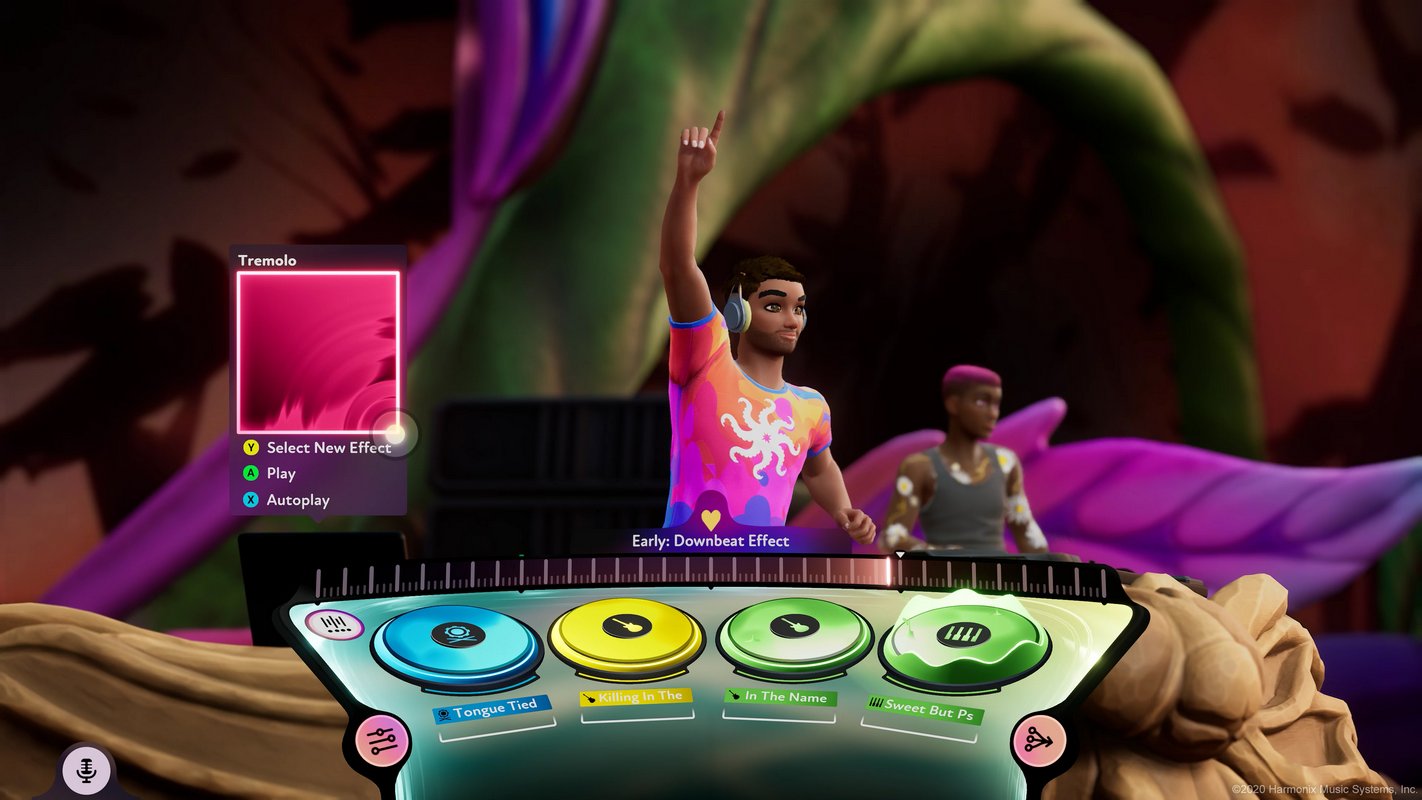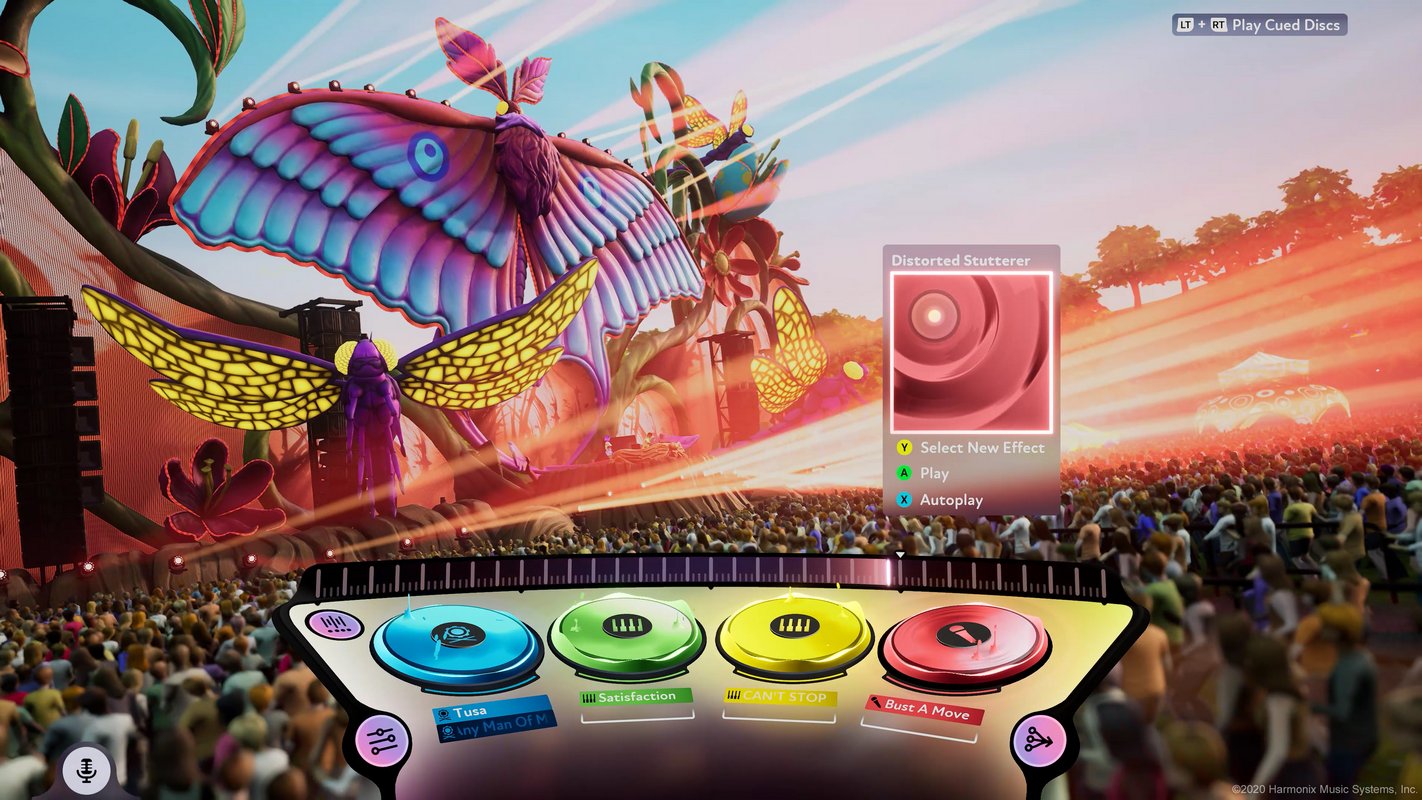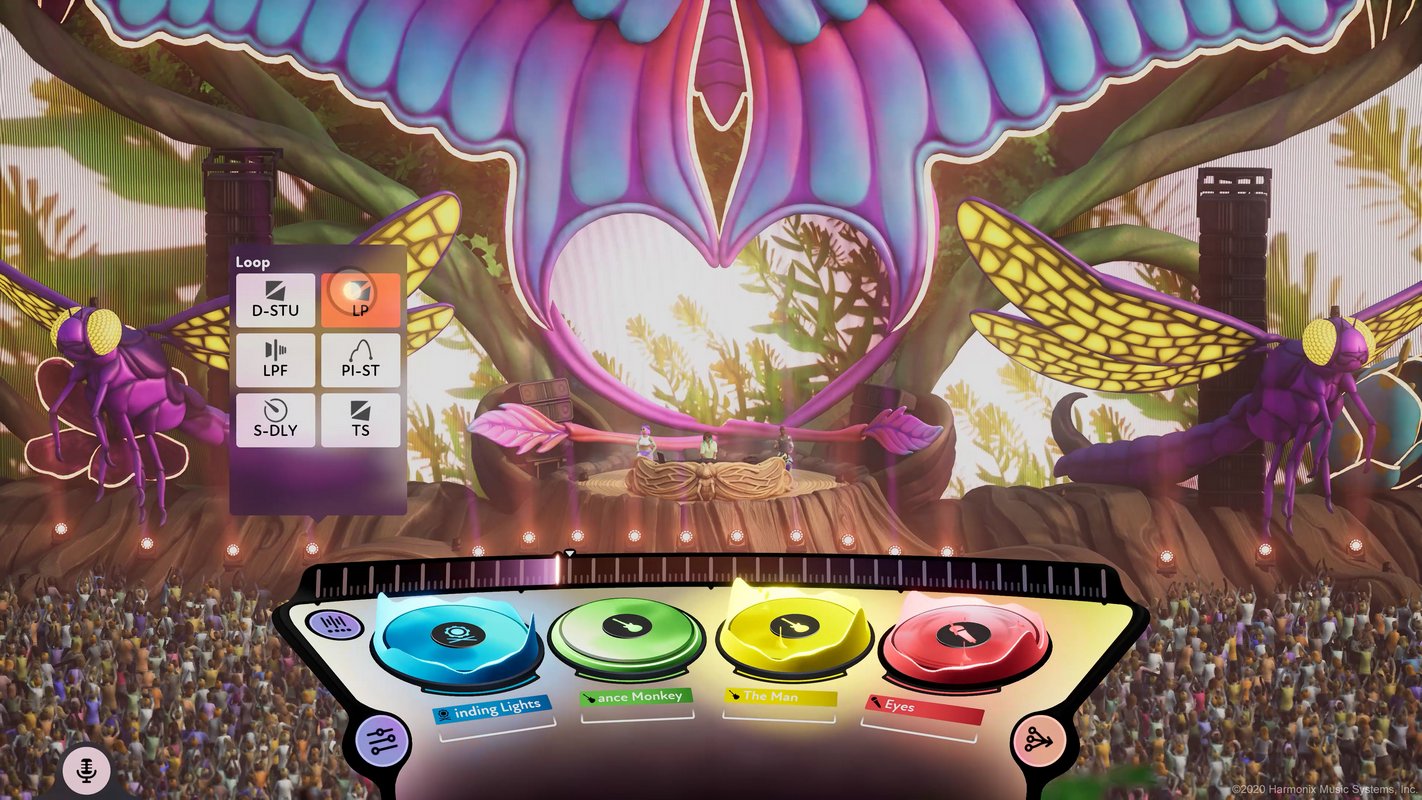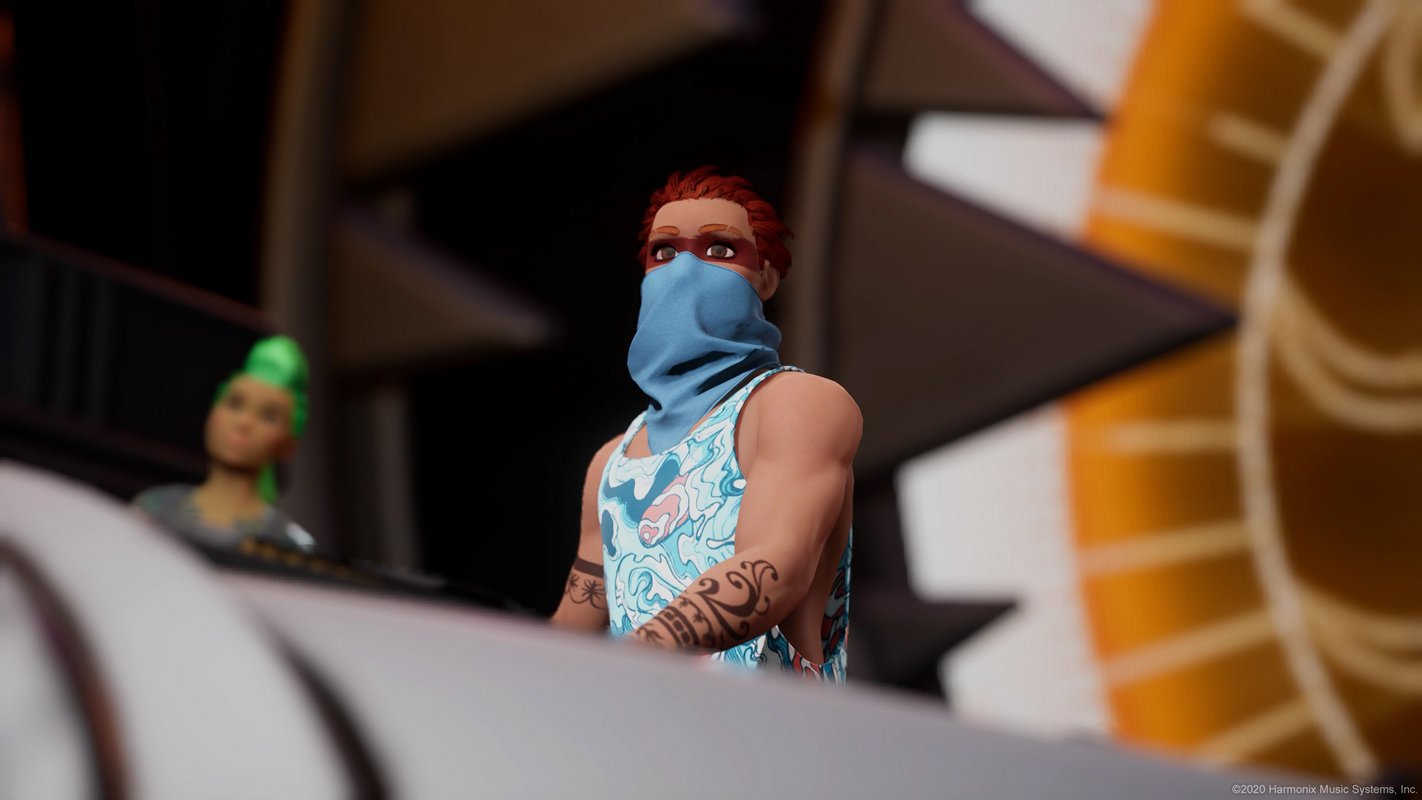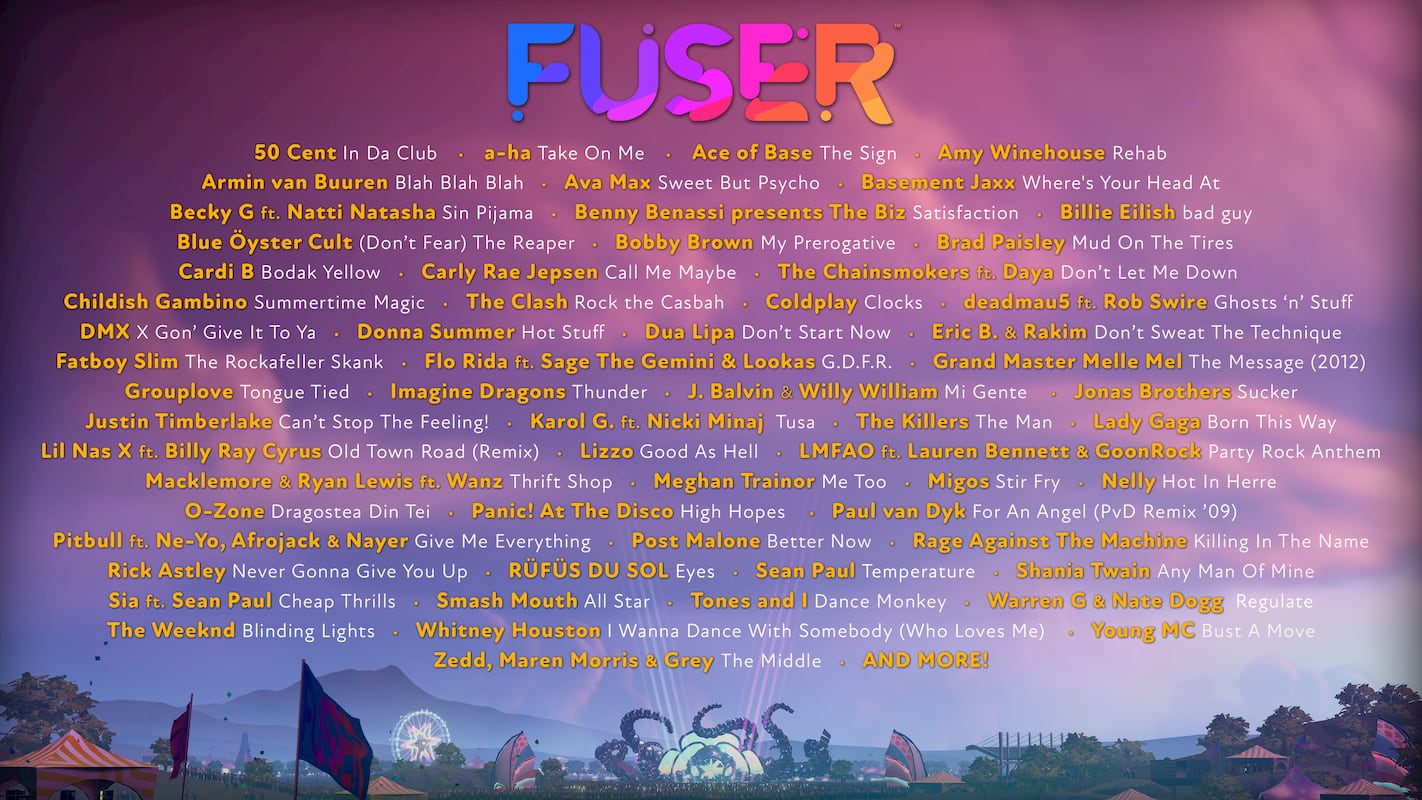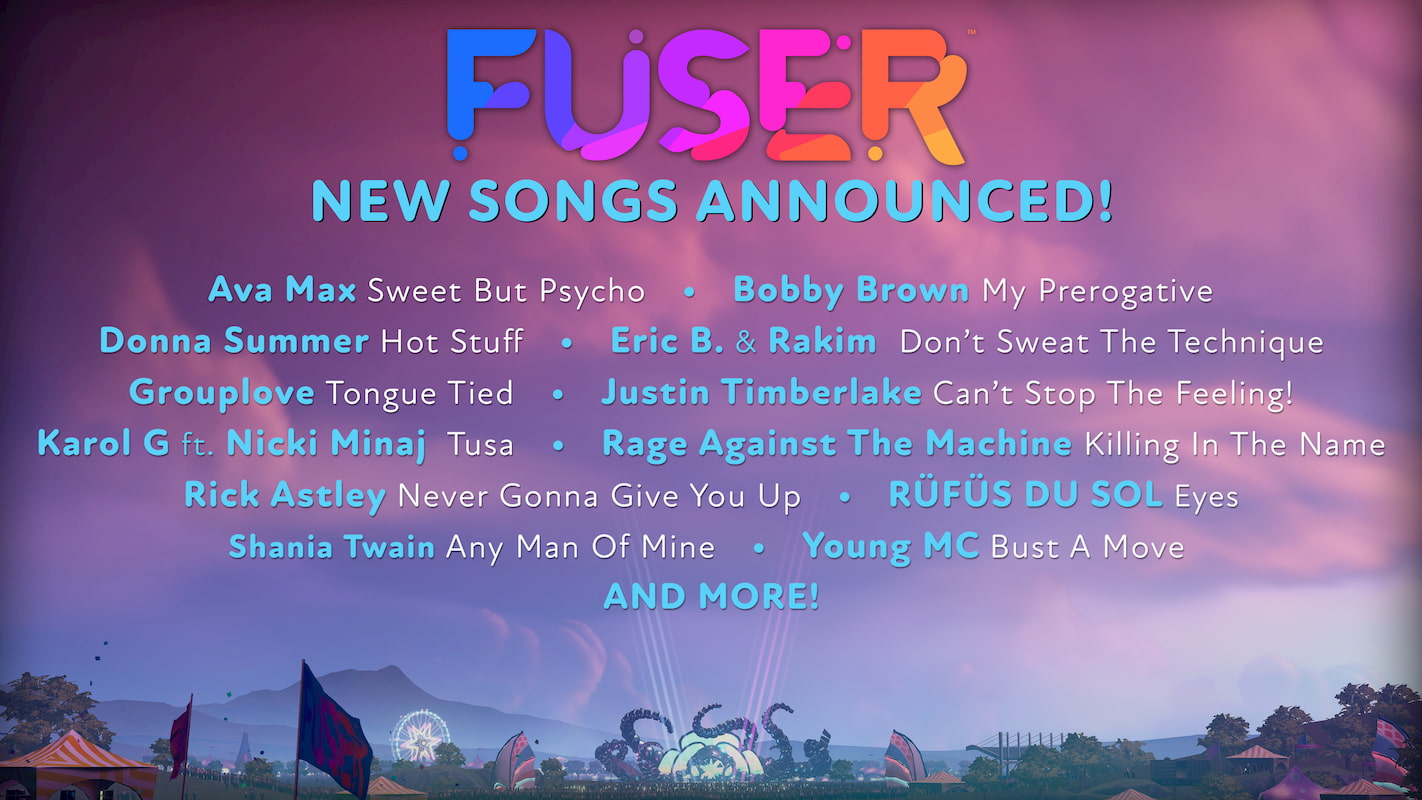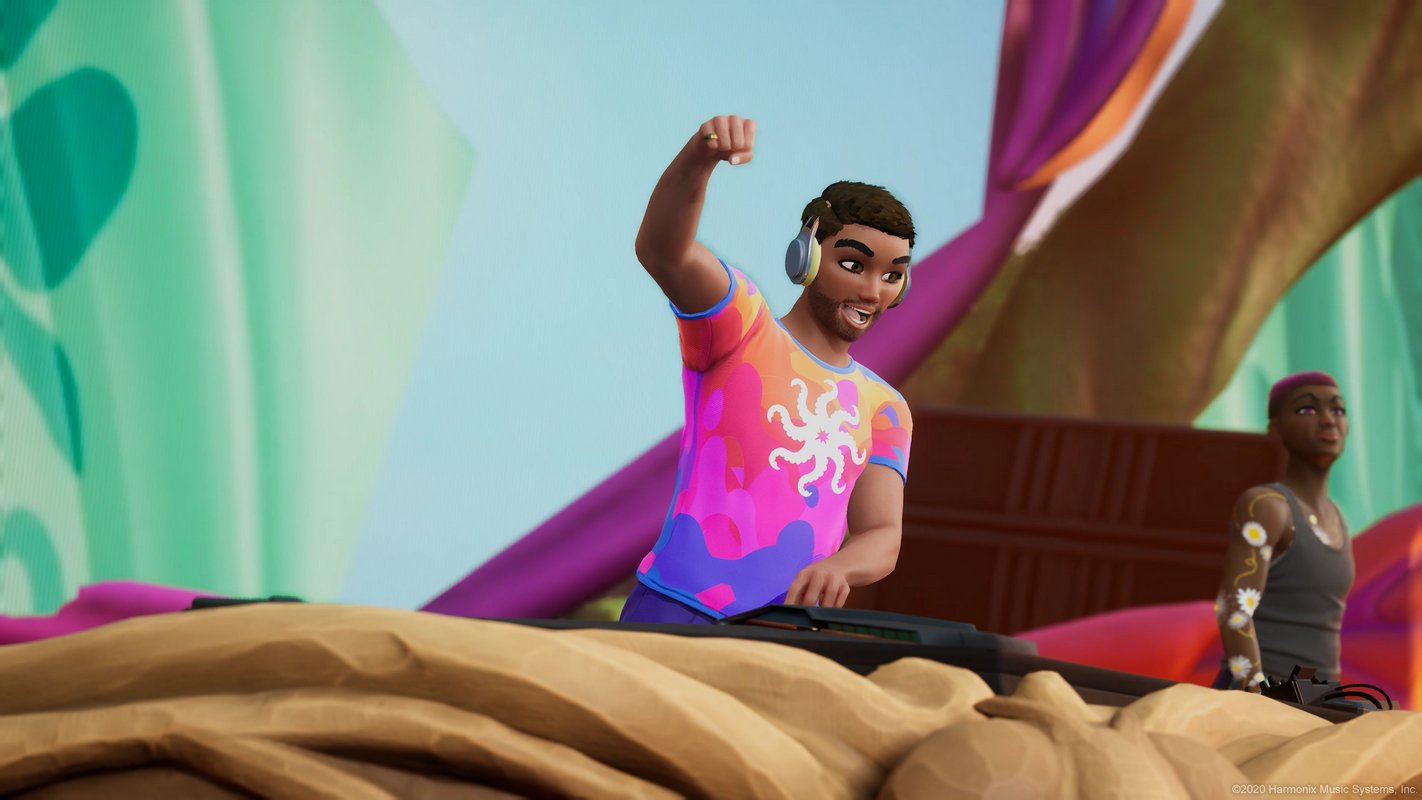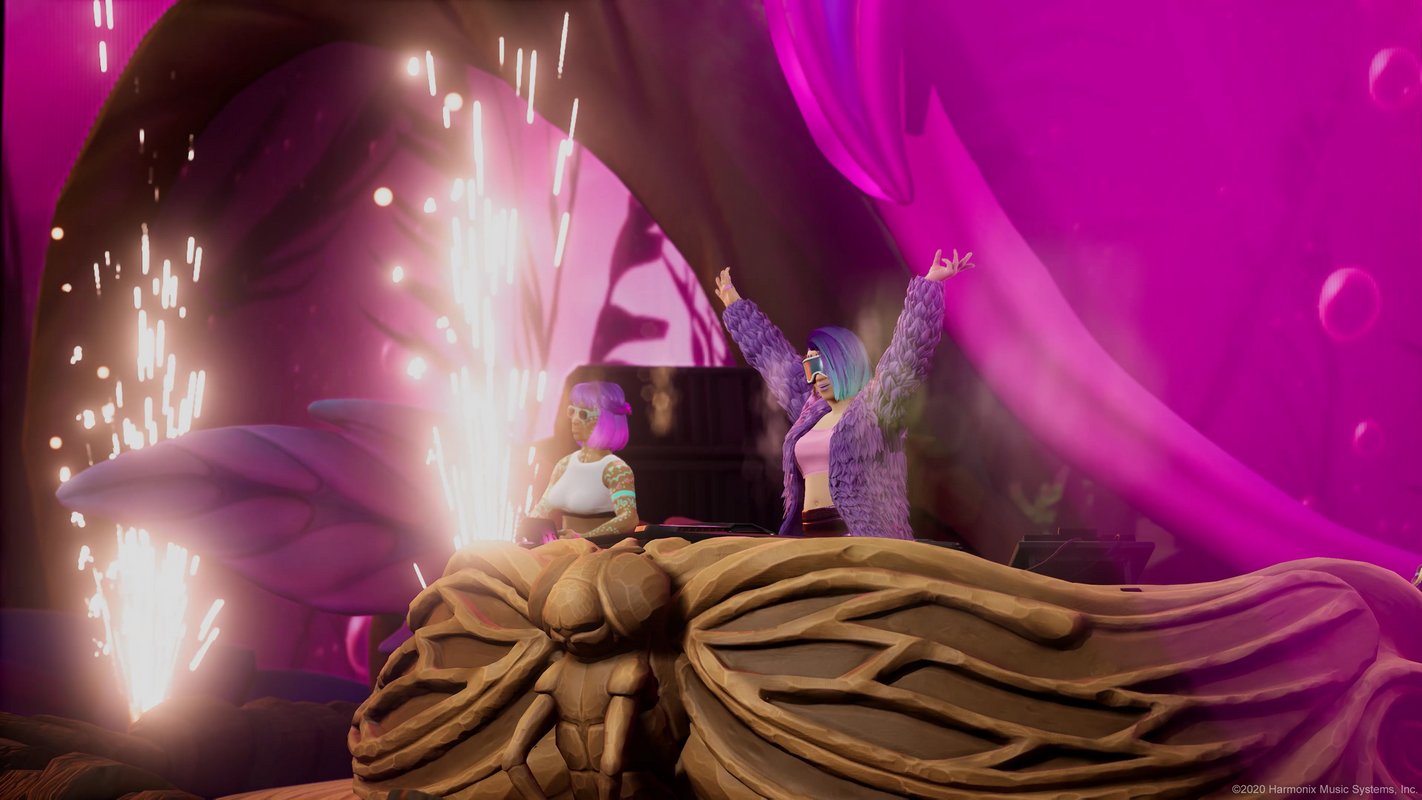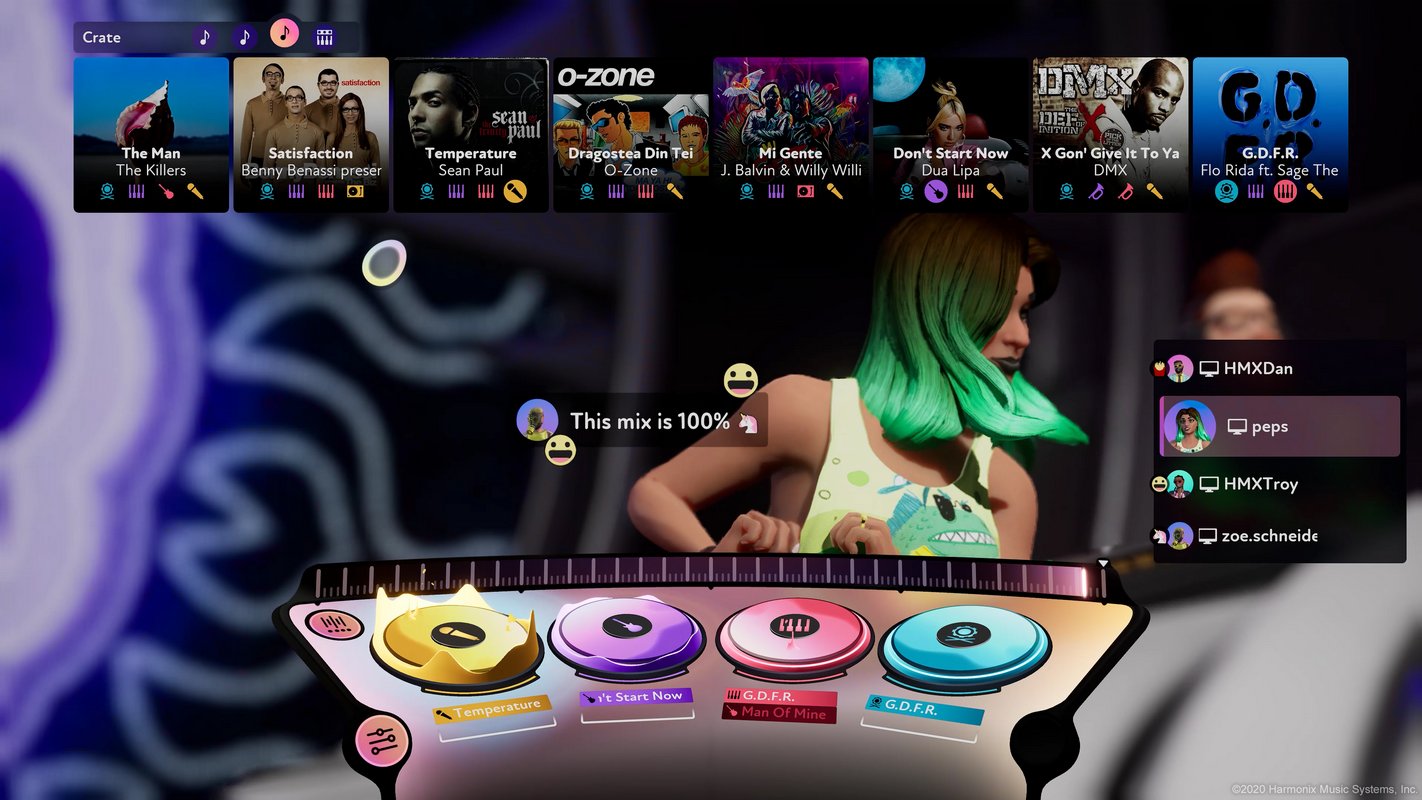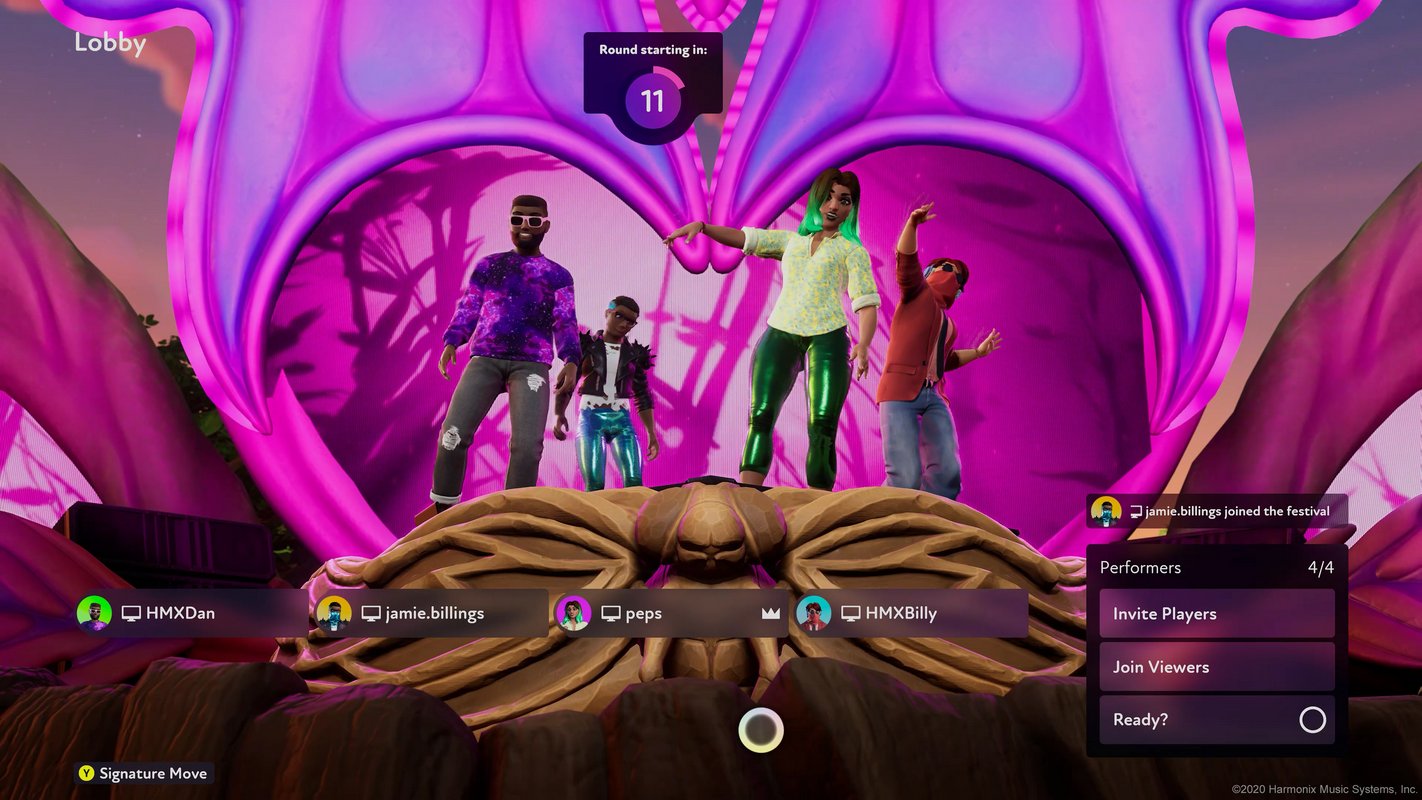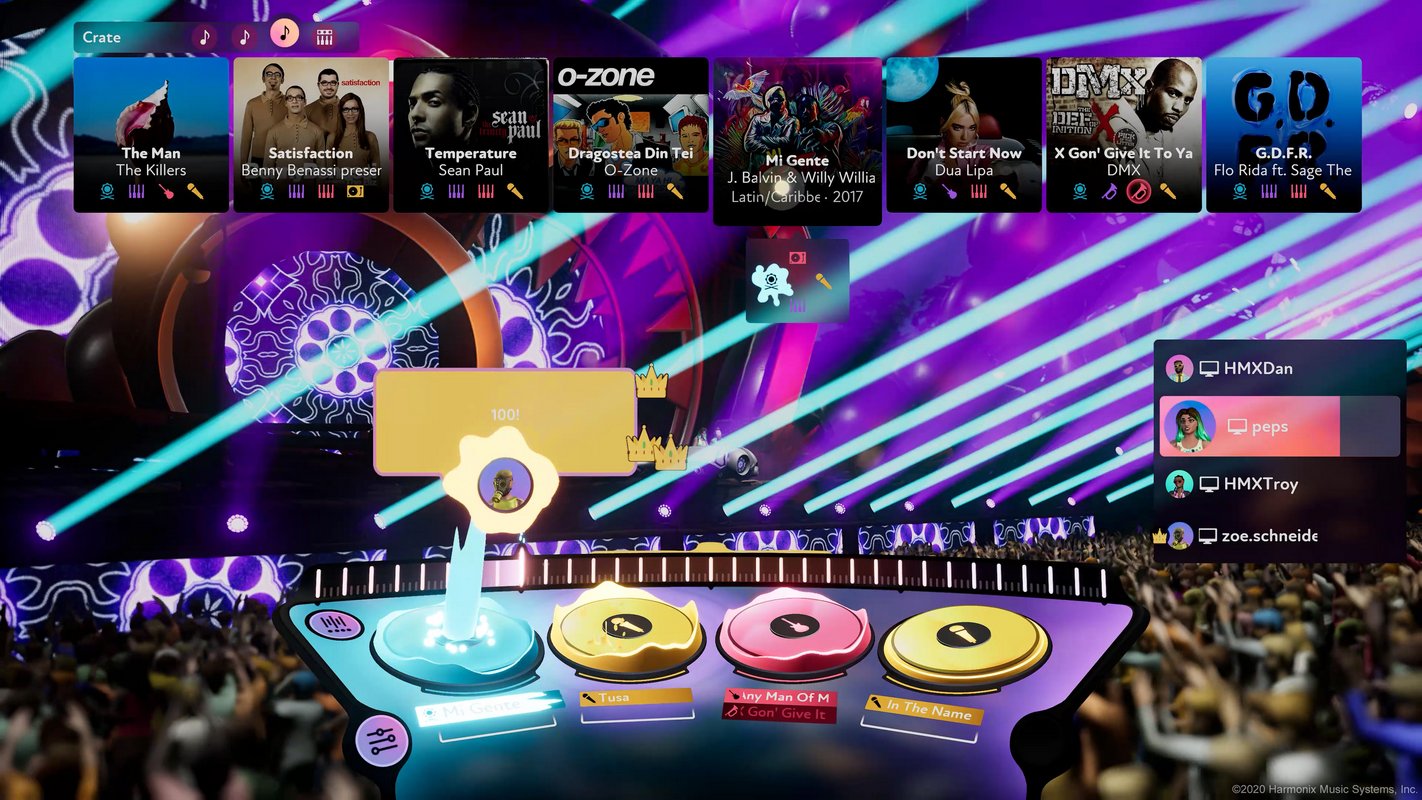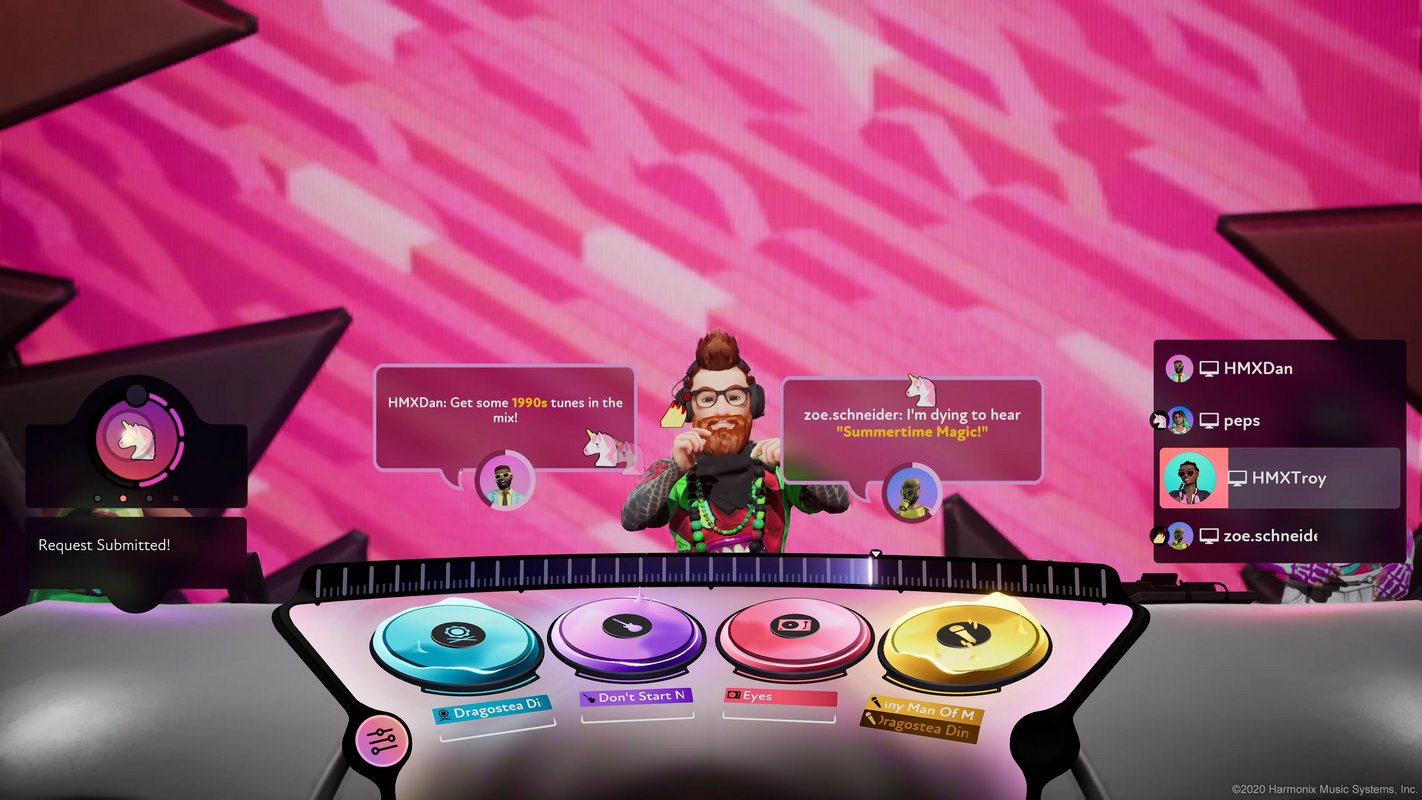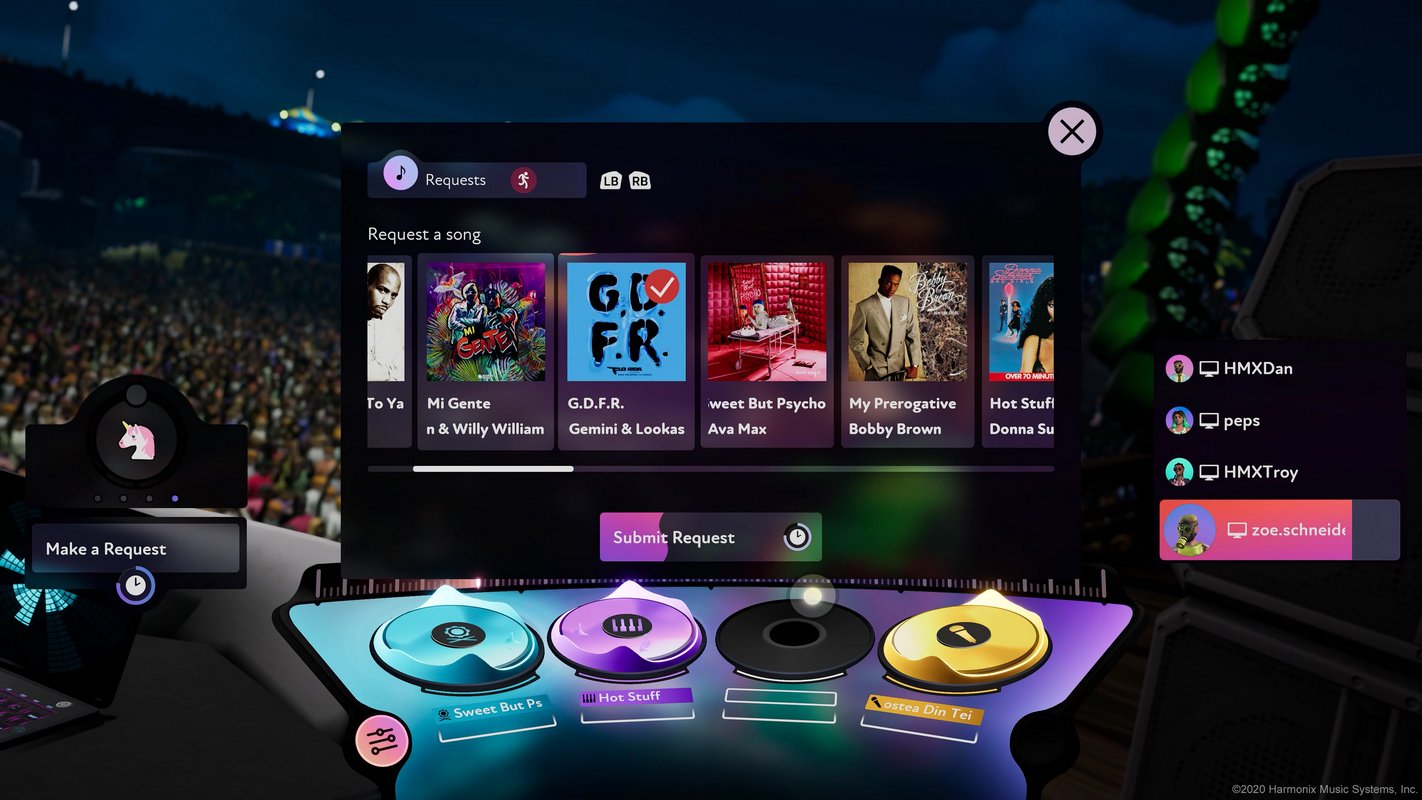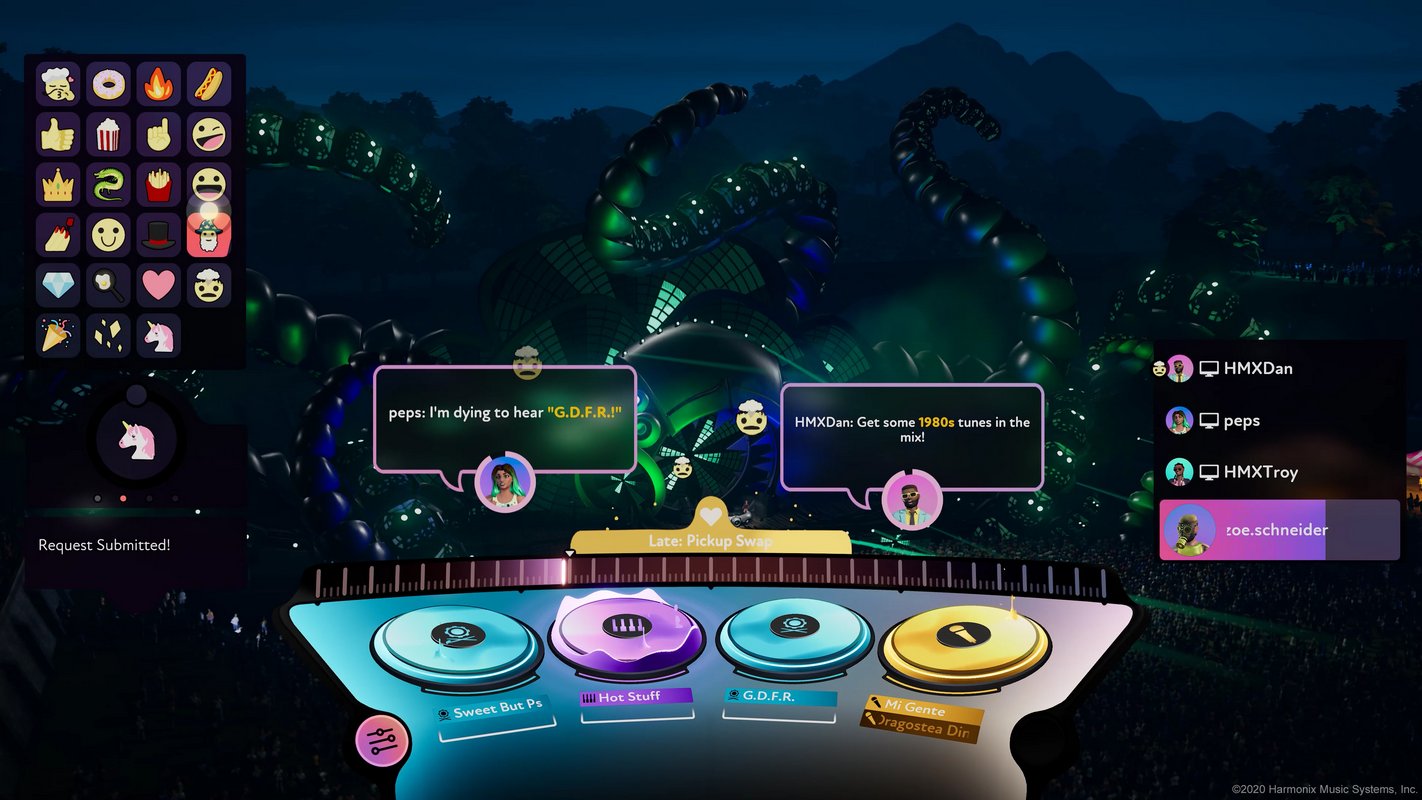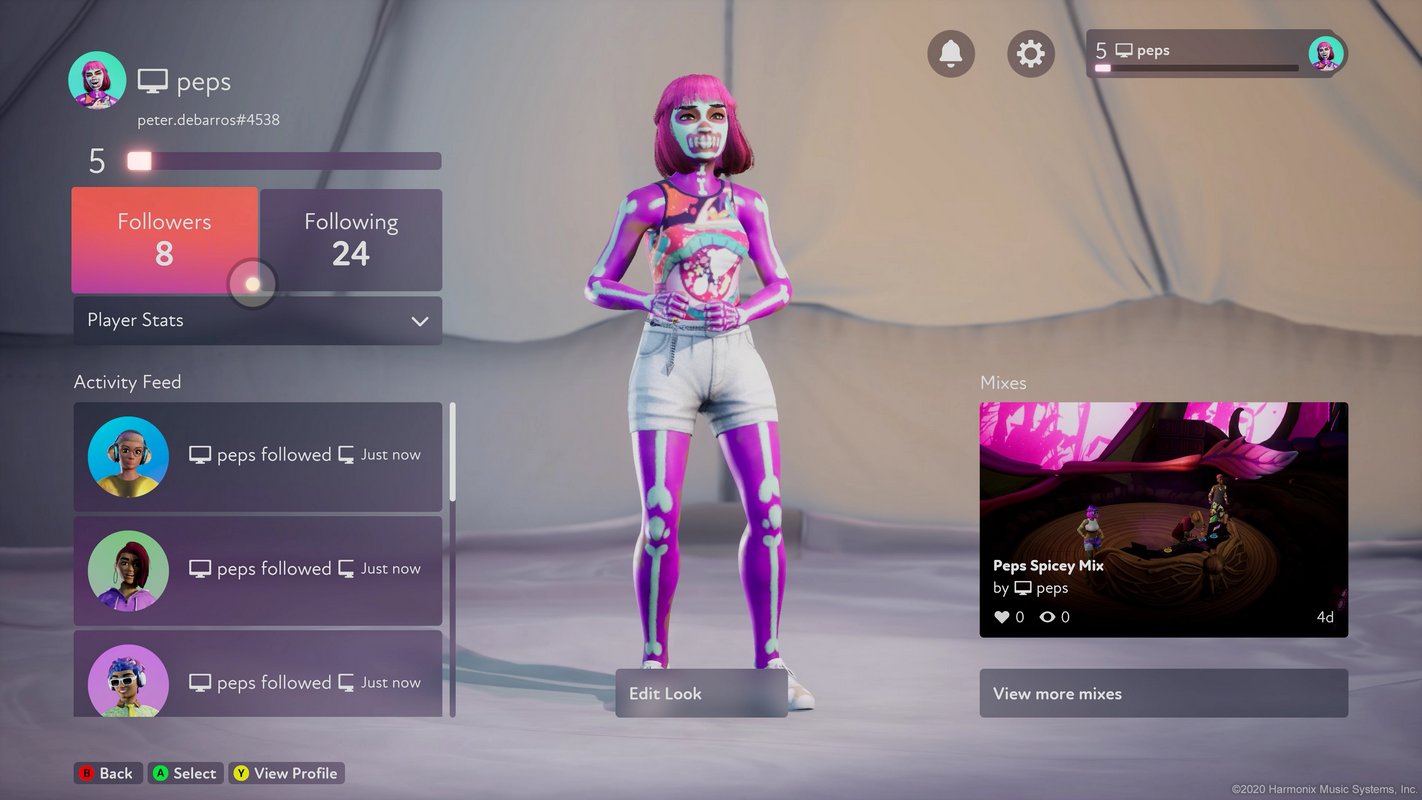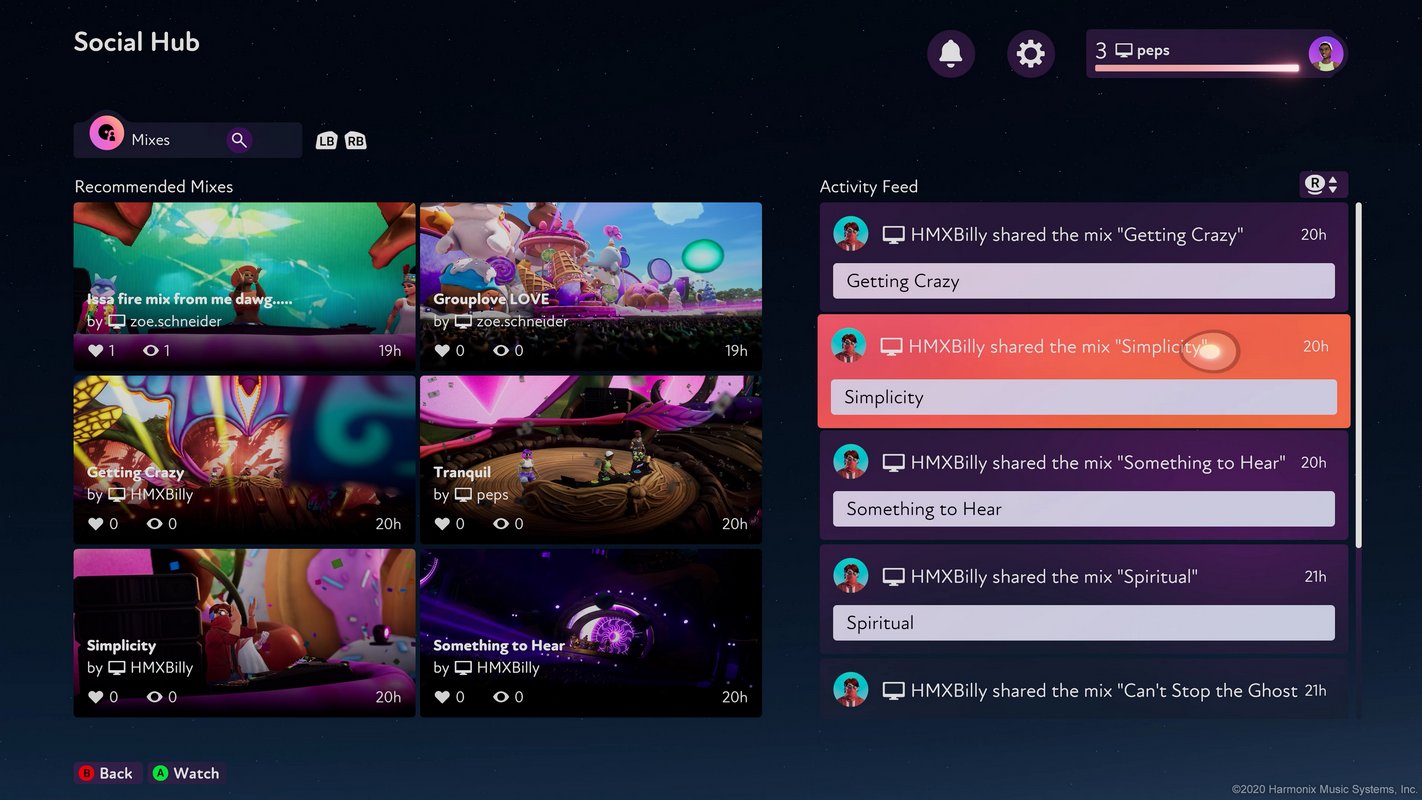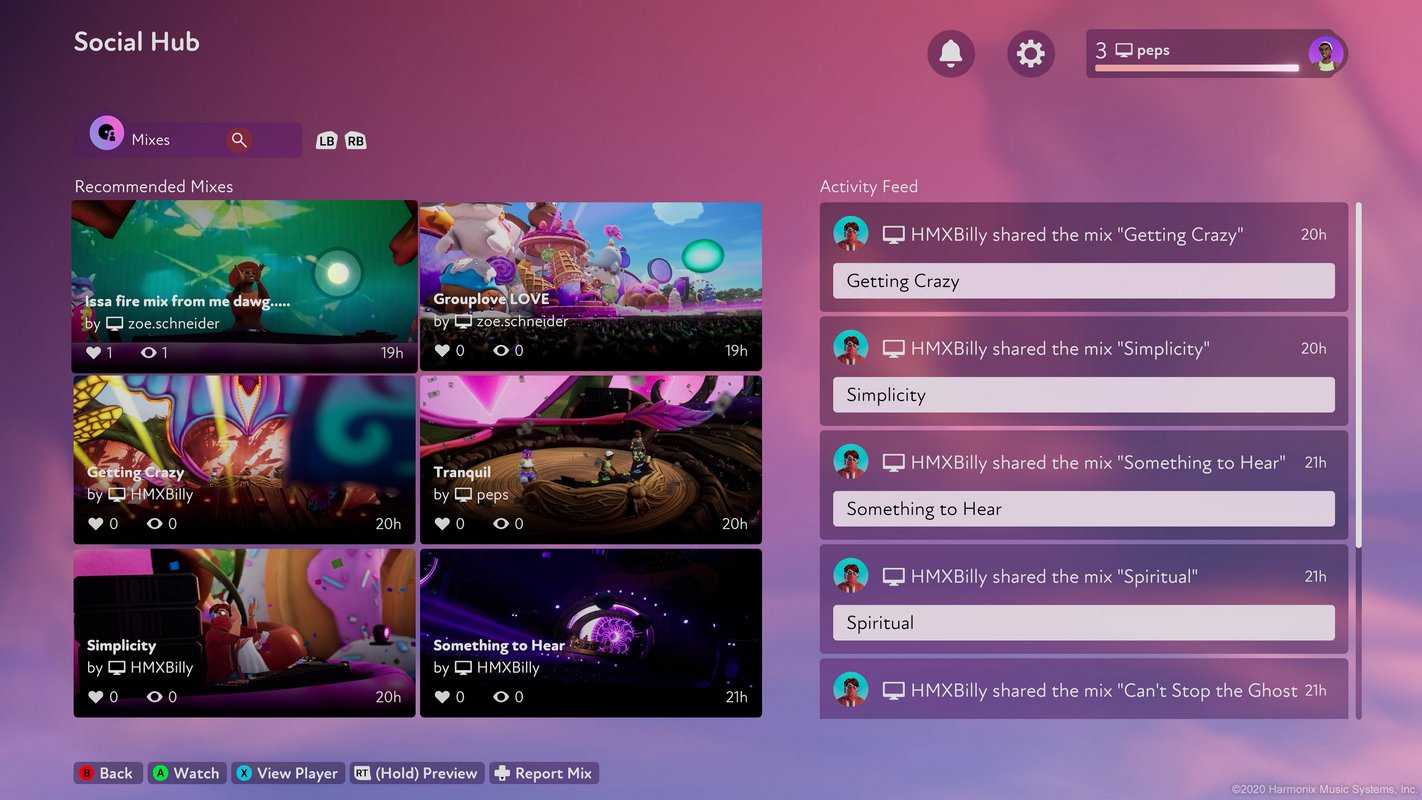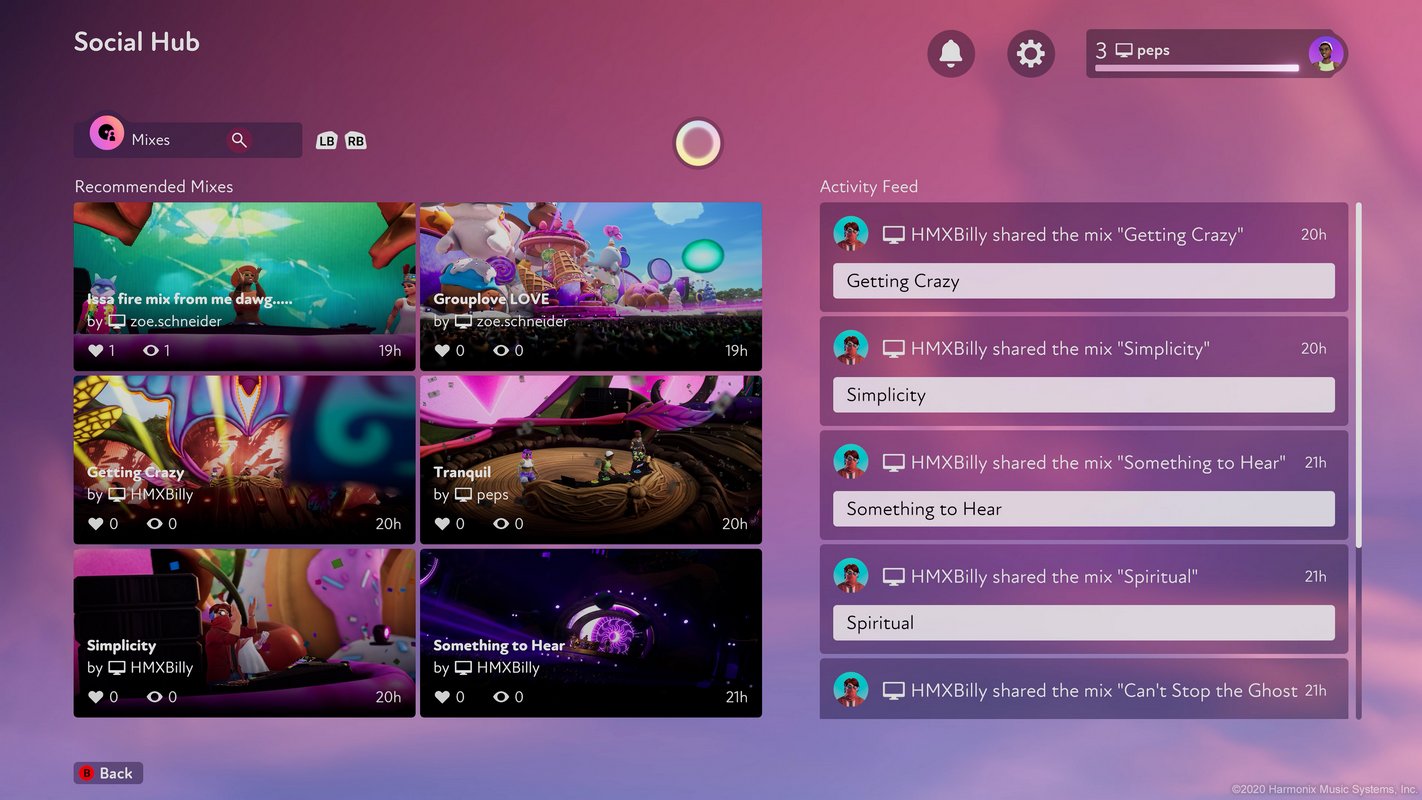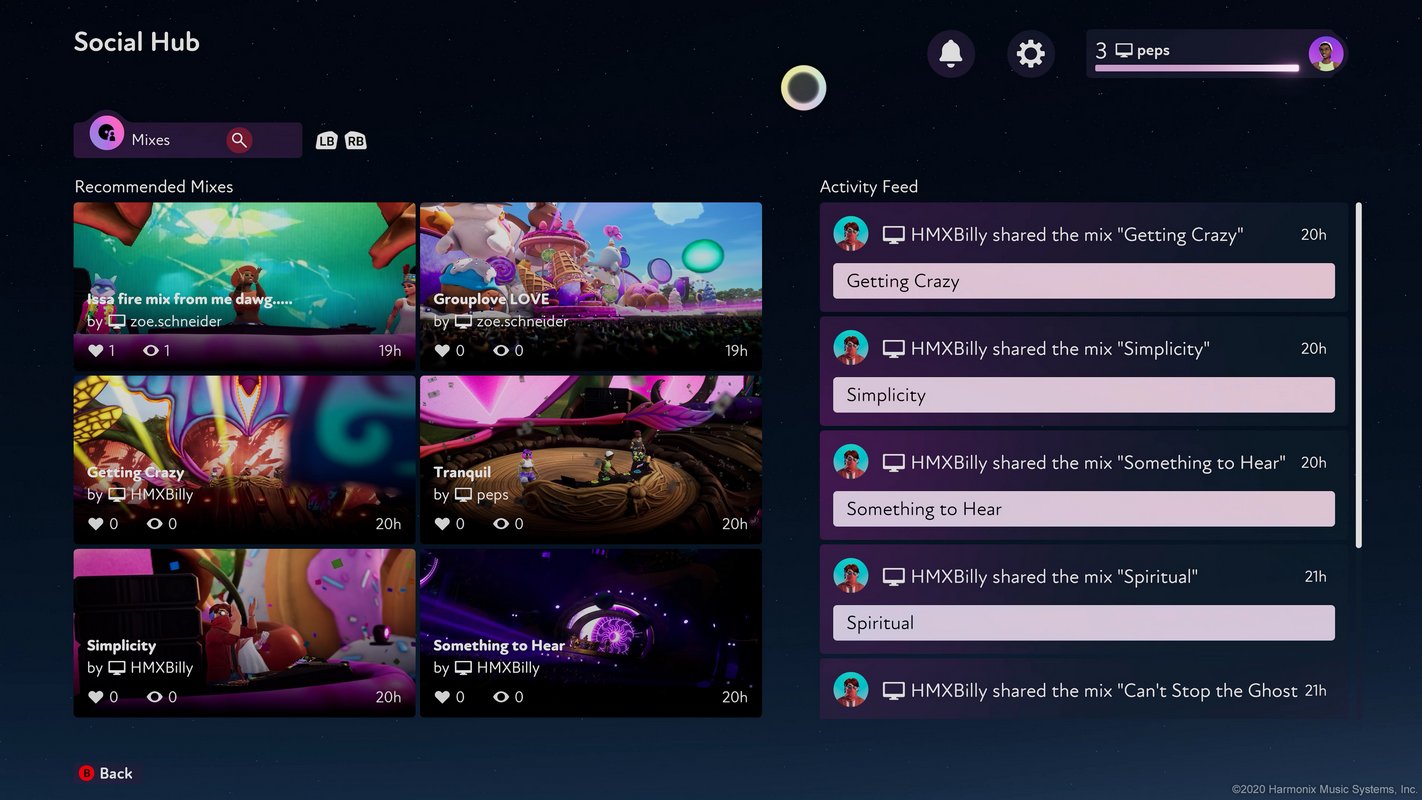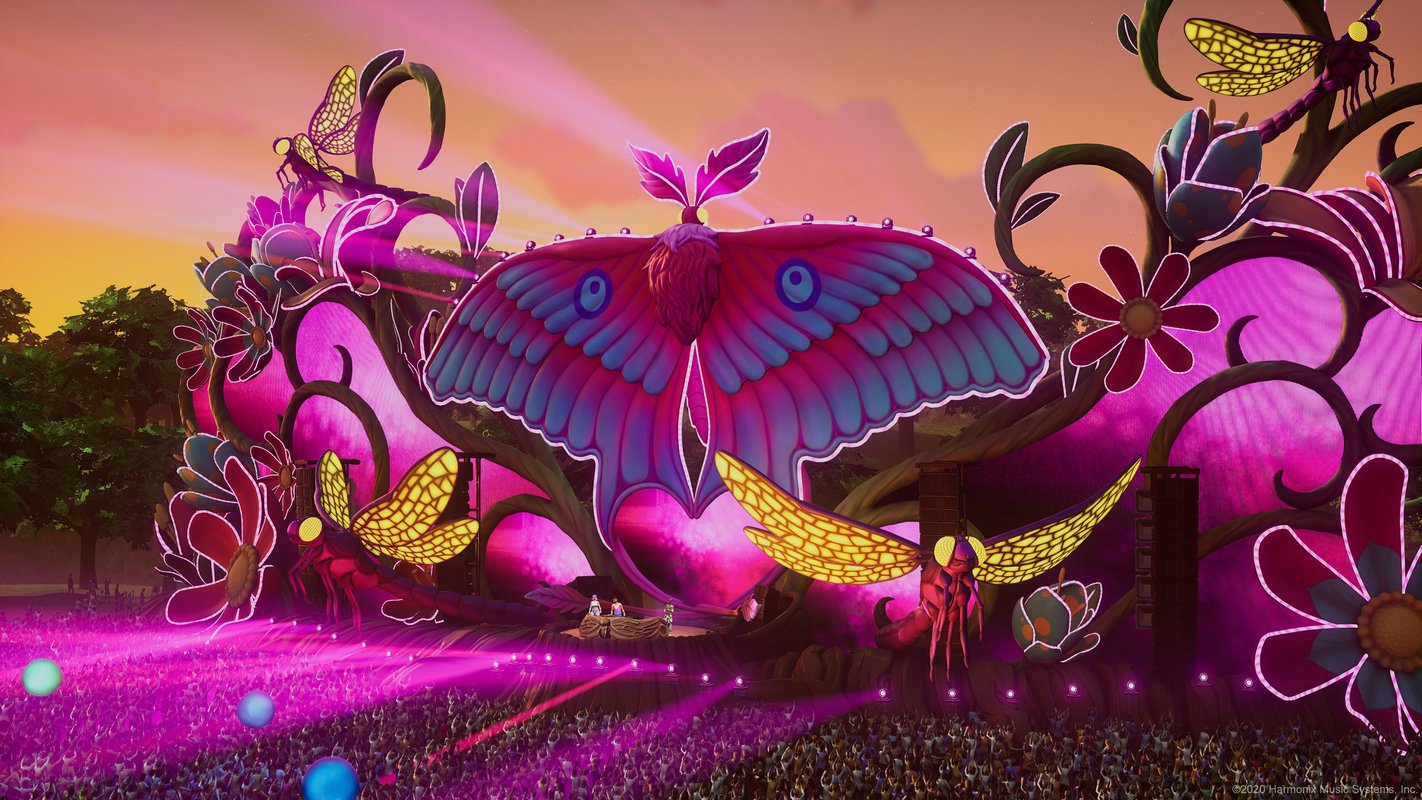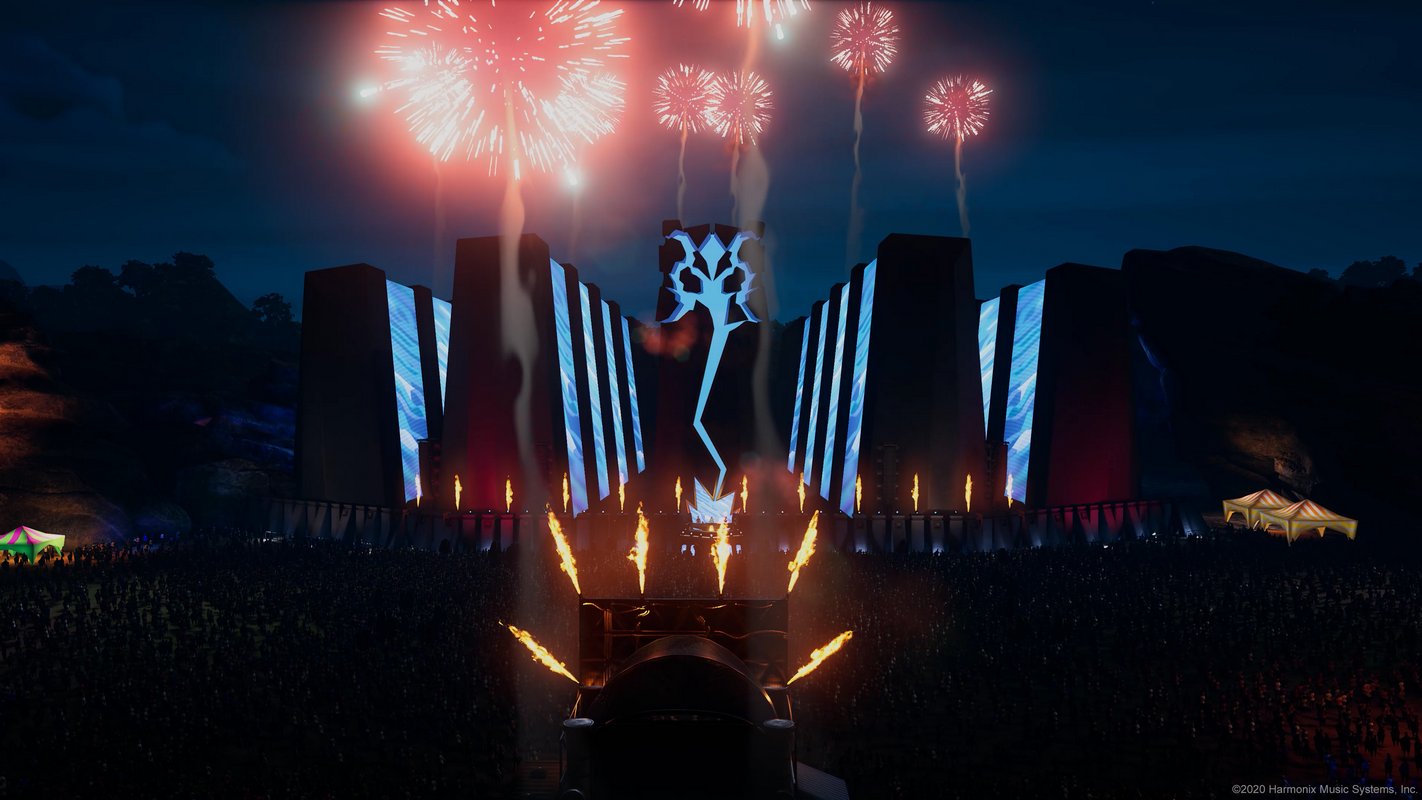FUSER might be the music game for a post-music game era
At this point, it's definitely safe to say that the era of rhythm and music games sparked by Guitar Hero is well and truly dead. We haven't seen a Guitar Hero title in five years, nor have we seen a proper Rock Band release in three. When you consider that we used to get multiple Guitar Hero games each and every year, it's safe to say that we've moved beyond that particular craze.
Music and rhythm games are still around, no doubt, but they're decidedly less mainstream than they were 10 years ago. FUSER, an upcoming game from Harmonix that puts you in the shoes of a festival DJ, could very well change that.
When FUSER was announced earlier in the year, the idea didn't really click for me. I'm one of those people who jumped on the Guitar Hero and Rock Band trains early on, with Rock Band 2 being the last of those games I played seriously. When I first saw screenshots and video for FUSER, there was definitely a degree of confusion. It was, after all, unfamiliar – there was no moving track full of notes that's integral to games like Rock Band, nor was there any indication of the peripherals that these music games have become known for.
Last week, I sat down with some folks from Harmonix (virtually, of course), and they gave me a closer look at the game before providing me with a demo to play myself. It's safe to say that I understand FUSER now – I get what it's trying to achieve and I'm sold on the idea. Though what I've played myself amounts to a small portion of the finished game, the content I got to see and demo shows a lot of promise and suggests that FUSER could be a music game for a mainstream crowd that is largely over music games.
On the surface at least, FUSER feels like a game that's less about developing a skill – learning to play your instrument as you progress through the ranks, like in Rock Band – and more about being creative. That's because you're not trying to play along with someone else's song. Instead, you're taking bits and pieces of different songs and putting them together to make your own mix, just as a festival DJ would.
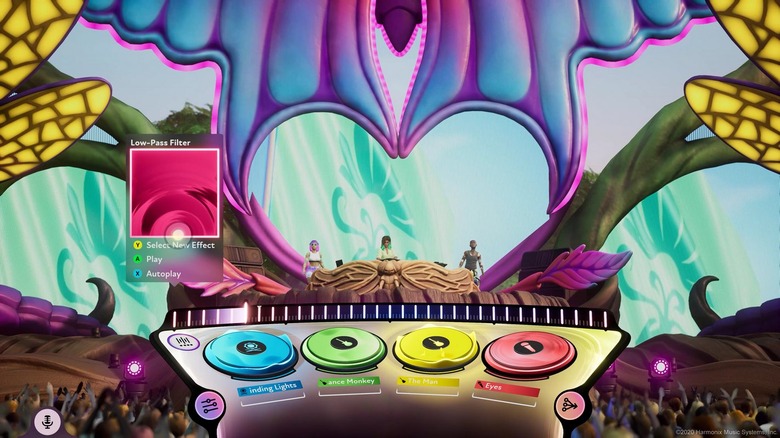
Before you start a performance, you get to pick which songs go into your crate. The demo build I had the chance to play only had a portion of the songs that will be in the finished game, but Harmonix is actually announcing a new collection of songs today – the new additions and the list of all the songs that have been revealed up to this point can be seen in the galleries below. As you play, you can drop parts from each of those songs on the turntable that's in front of you, which has space for four different discs.
You could, for instance, group the bassline from The Weeknd's Blinding Lights, the synth from Donna Summer's Hot Stuff, the horns from Amy Winehouse's Rehab, and the vocals from Grouplove's Tongue Tied to create your own mix. You're not just limited to pulling various parts from famous songs either, as you can apply filters to each part, change the BPM of your mix on the fly, or even create your own loops using various instrument samples and drop them into your song.
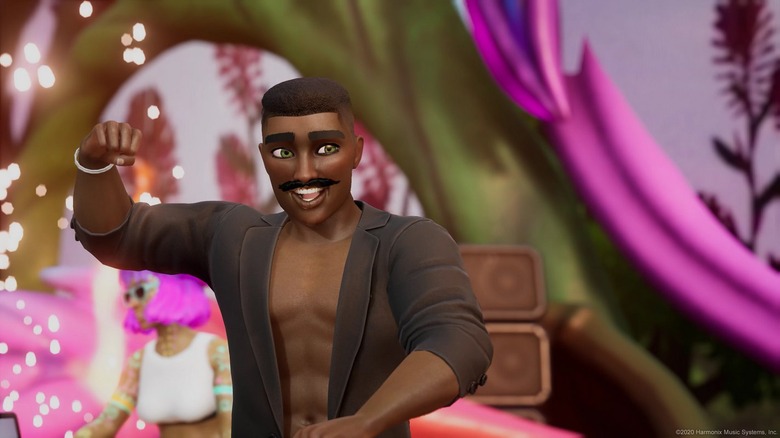
As someone who played so much Rock Band and Guitar Hero that I could play most songs on expert and who also spent an obscene amount of time and money grinding Dance Dance Revolution back in my younger days, I'm not really a stranger to rhythm games, but that doesn't really help me here. Dropping discs with the downbeat is an important aspect of playing this game, so experience with rhythm games will help in that regard, but success in this game isn't all about timing. You also have to please the crowd, and you can do that by granting requests throughout your performance.
Maybe someone wants to hear a guitar part – any guitar part – or another person wants to hear Shania Twain. You'll only have a few seconds to grant those requests, and if you do, the crowd will like you more. Ignore the crowd's wishes or mess up your timing with disc drops and the crowd's opinion of you will drop, eventually ending your performance early if it gets too low.
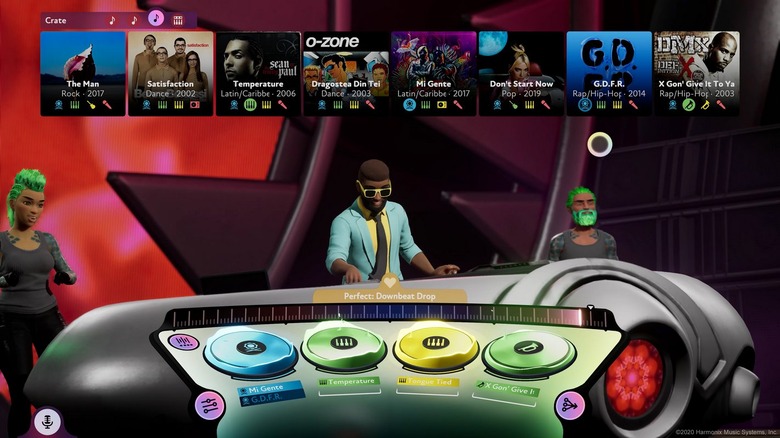
Harmonix told me that in FUSER, the idea isn't to reward players who create the "correct" mixes and penalize those who don't. In Rock Band, the failure condition is clear because the song you're playing should really only be played one way; mess up enough notes and you fail the song. What makes a good mix is entirely subjective though, and what sounds good to me might sound awful to you. So, instead of failing because you mixed the wrong kind of song, you'll fail when you don't please the crowd or pay attention to the timing of your drops.
Aside from goals that you'll be presented with throughout the song (many of which aren't very specific), you've got a lot of freedom in how you create your mix. That kind of experimentation might be the most addicting part of FUSER, and I can see it being just as replayable as Rock Band or Guitar Hero but for entirely different reasons.
I have no qualms telling you that I'm completely awful at this game, as I failed two of the three stages that were available to me in this demo multiple times before finally succeeding. You have a lot of options when it comes to creating your mixes, and while that can ensure that you'll be doing something unique each time you play a stage, it can also be overwhelming. Just like in Rock Band or Guitar Hero, it seems that practice will make perfect in FUSER.
Of course, the single-player campaign is just one part of FUSER, though it's the part I spent the most time with in the demo. There will also be competitive and collaborative multiplayer modes, a freestyle mode that gives you a bit more freedom in experimenting with songs, and even a social aspect that lets you share the mixes you create and follow other players so you can see their mixes too. There also seems to be a lot of options when it comes to customizing your DJ, with a ton of choices for clothes, makeup, hairstyles, and facial features.
All in all, I'm impressed by what I've seen of FUSER so far. There's certainly a lot to take in, but this could be one of Harmonix's most accessible games for the simple fact that it doesn't require a bunch of different peripherals – all you need to play is a controller or a keyboard and mouse (and the game, of course). I'm looking forward to seeing the full game in November, because at the moment FUSER shows a lot of promise.

